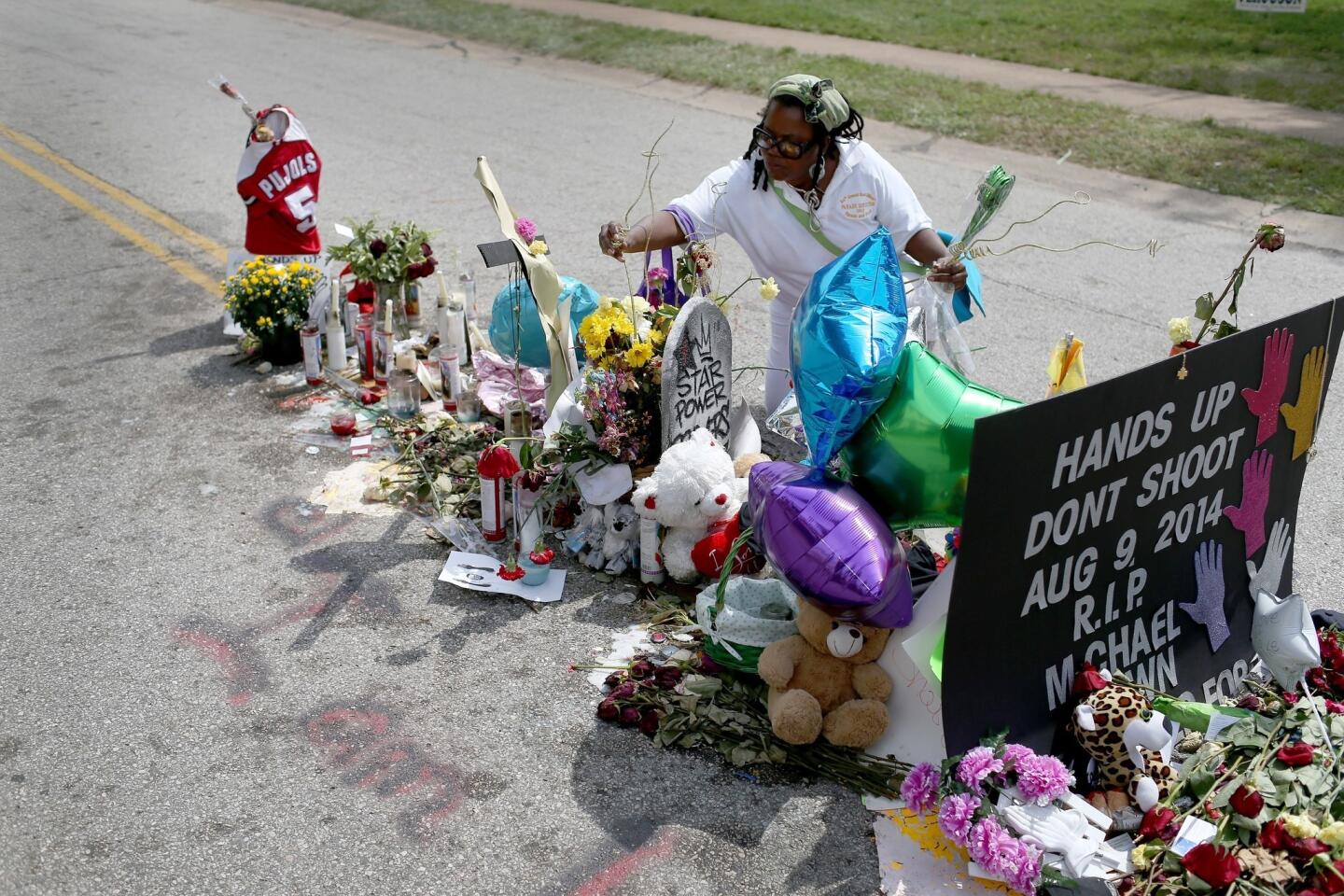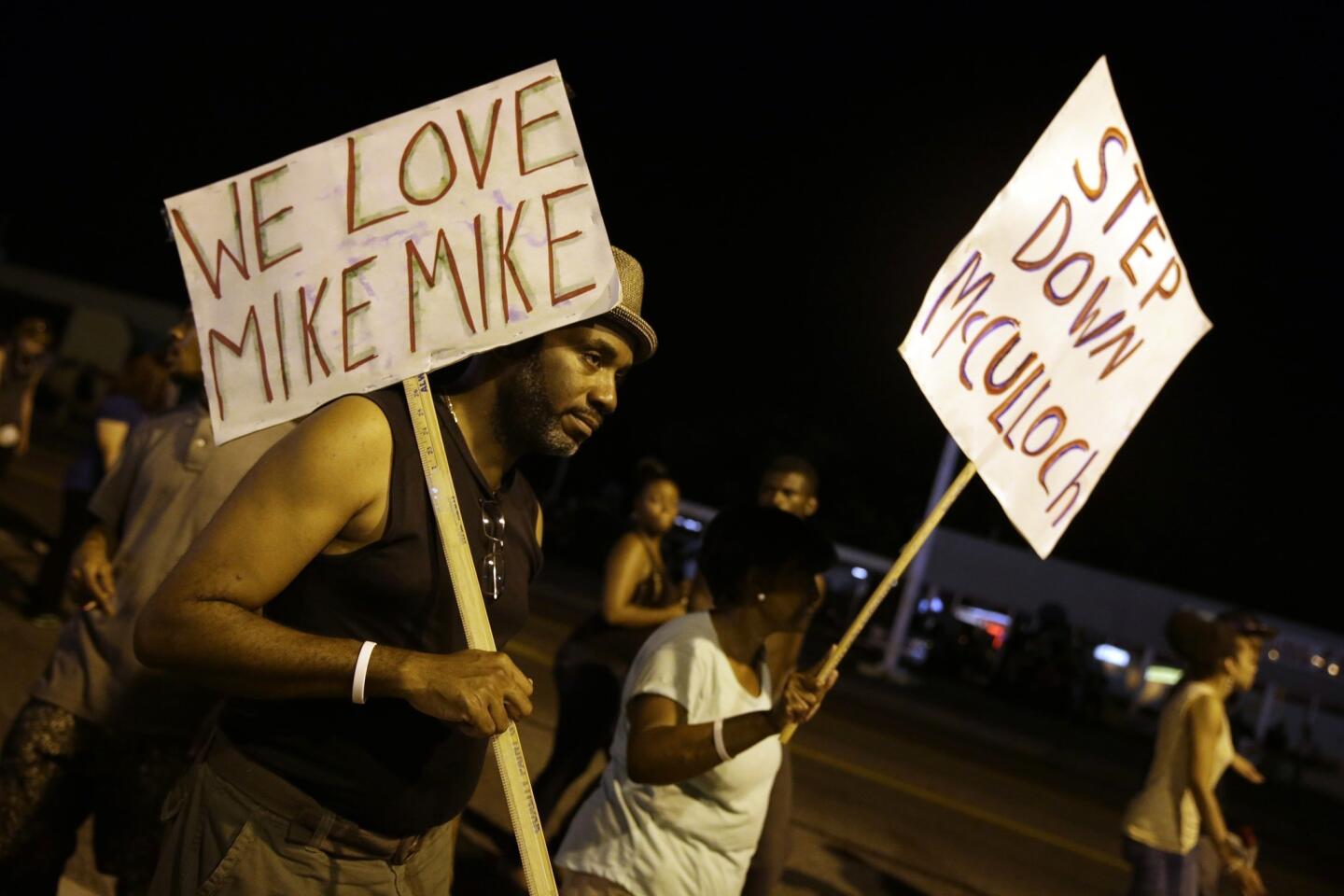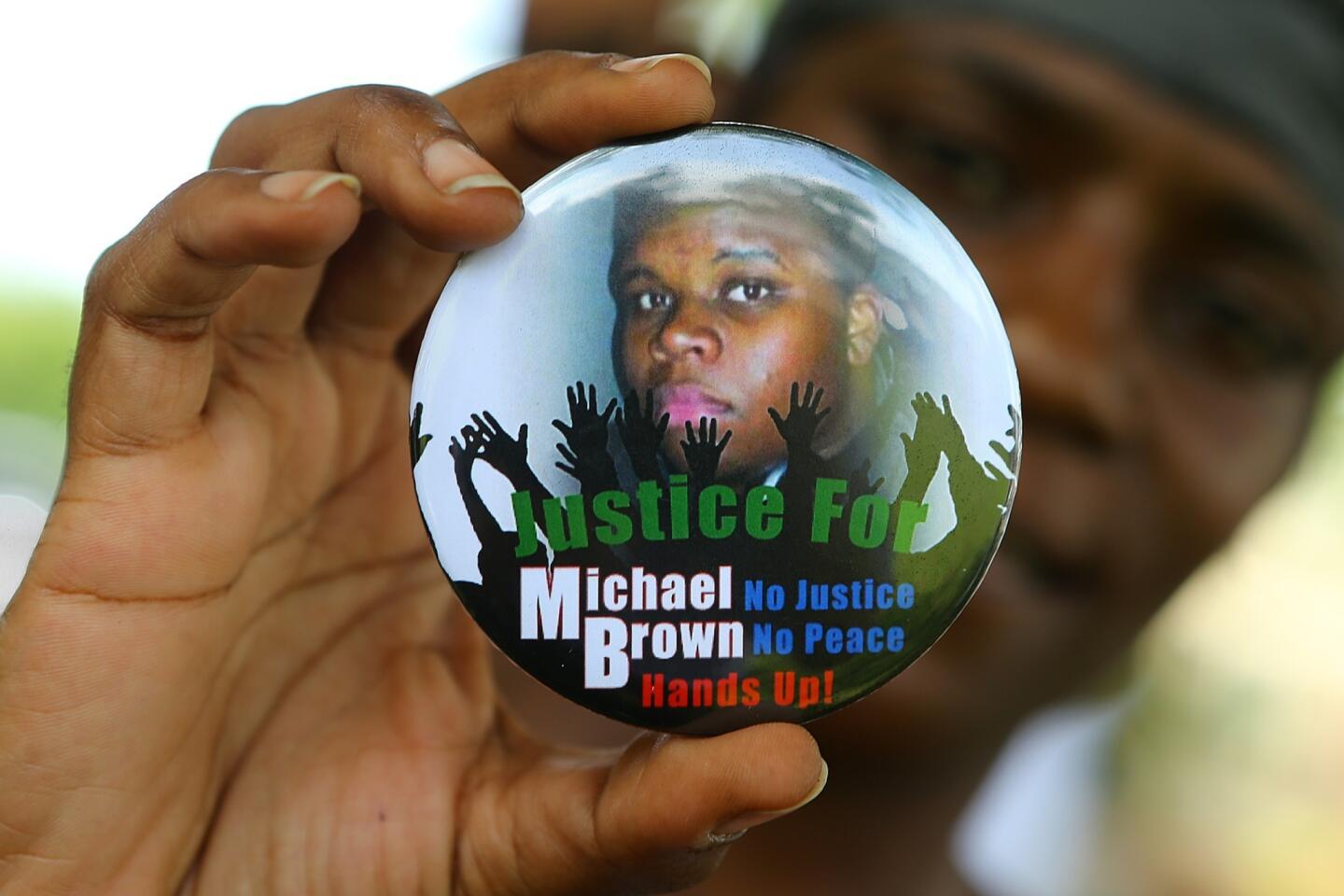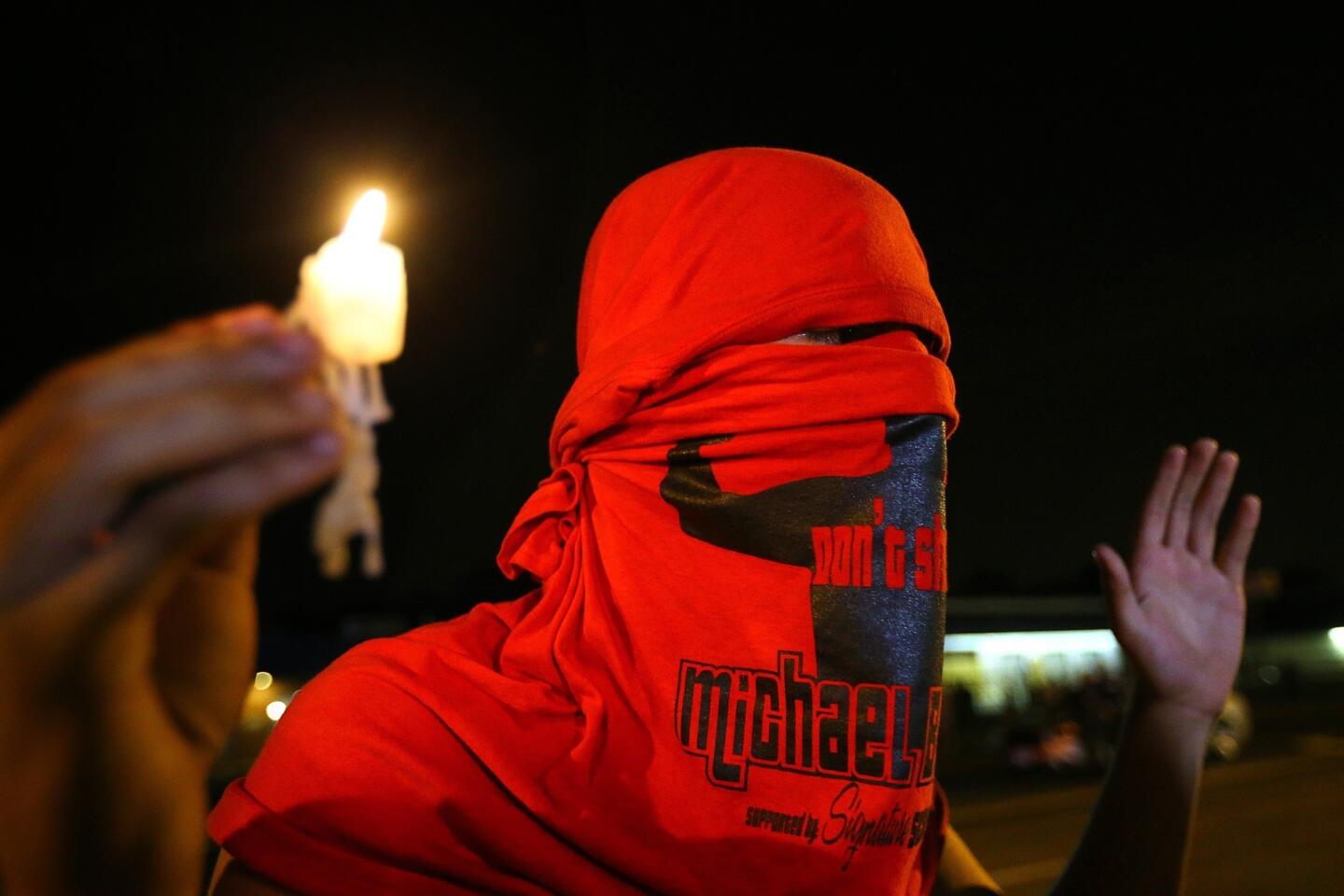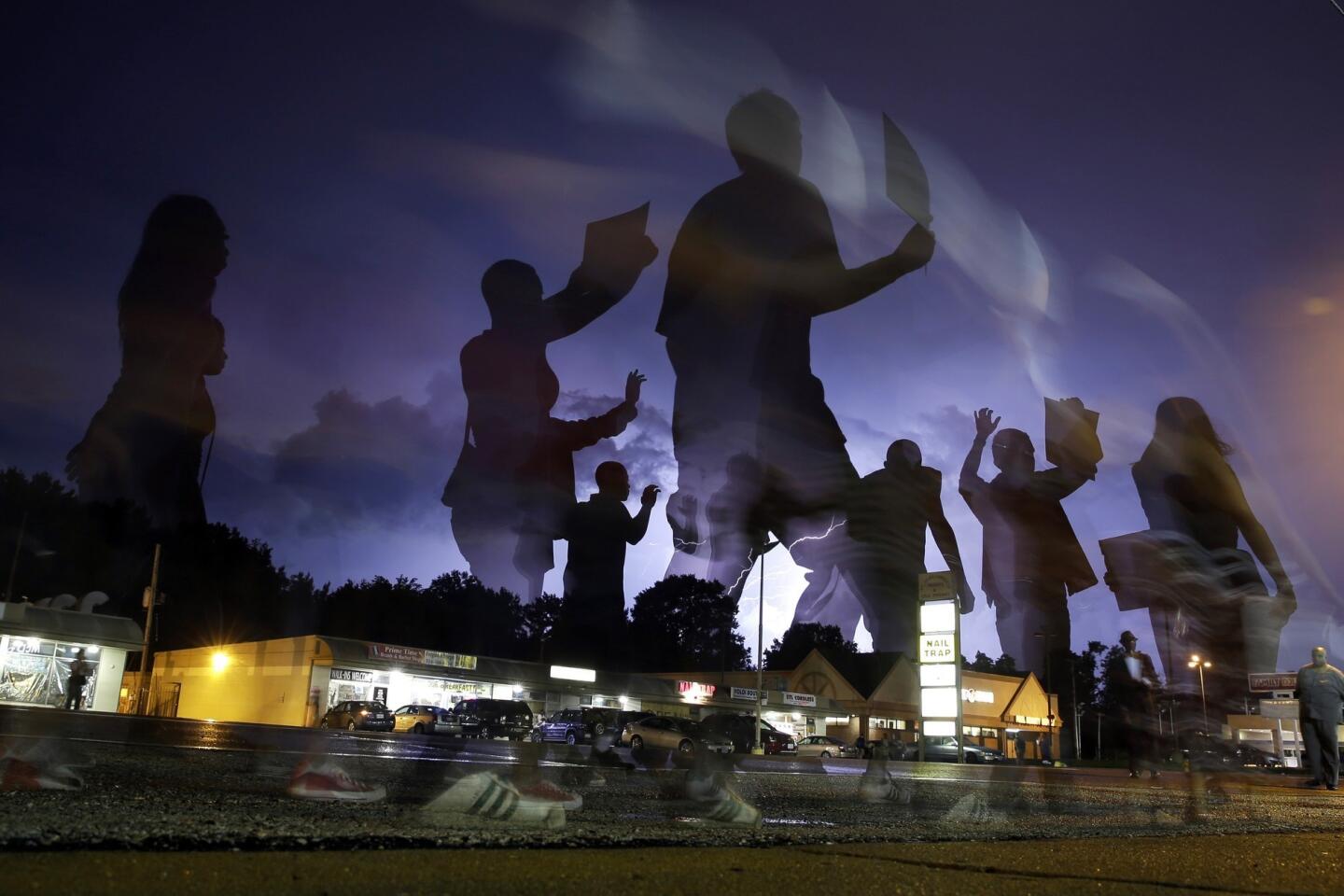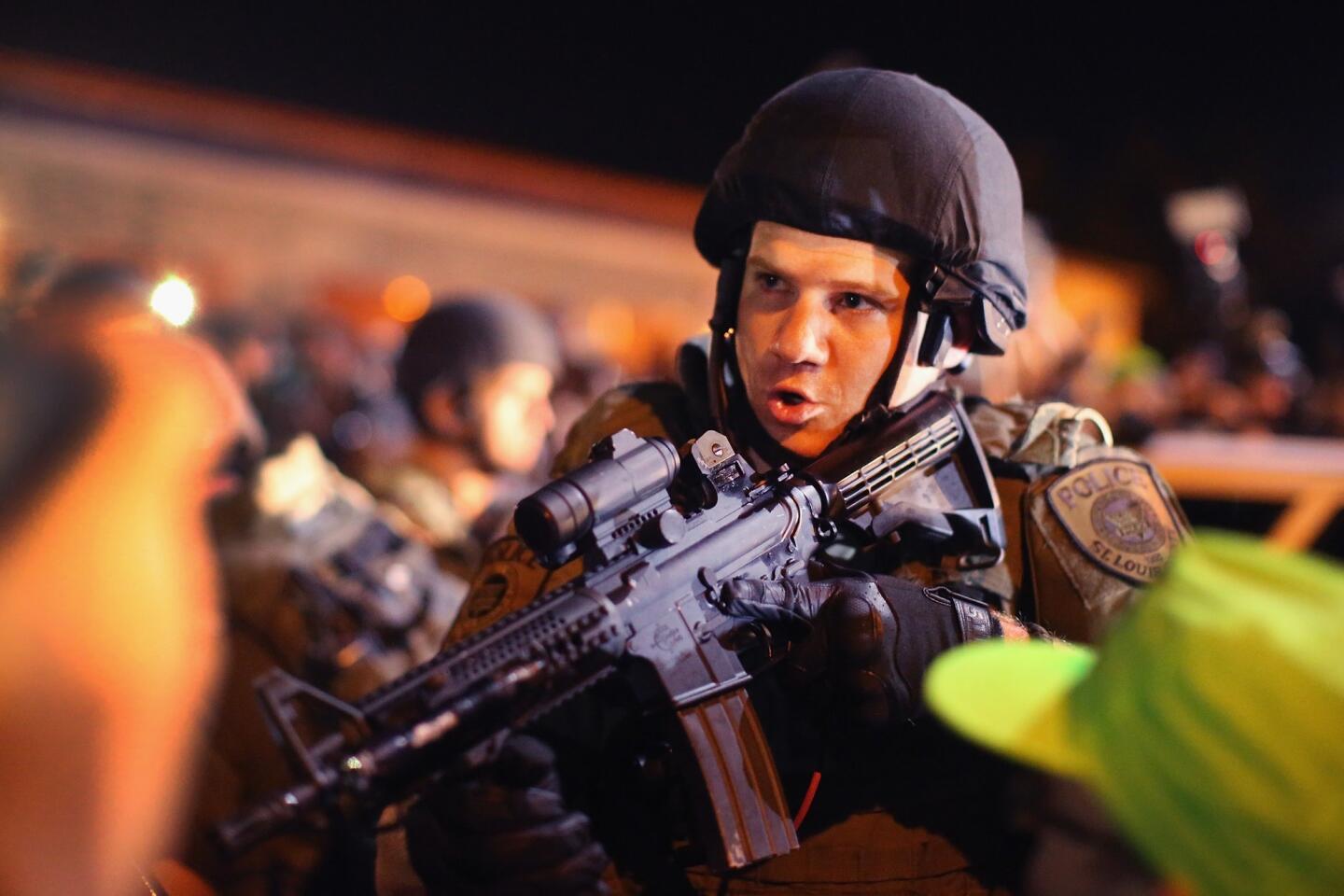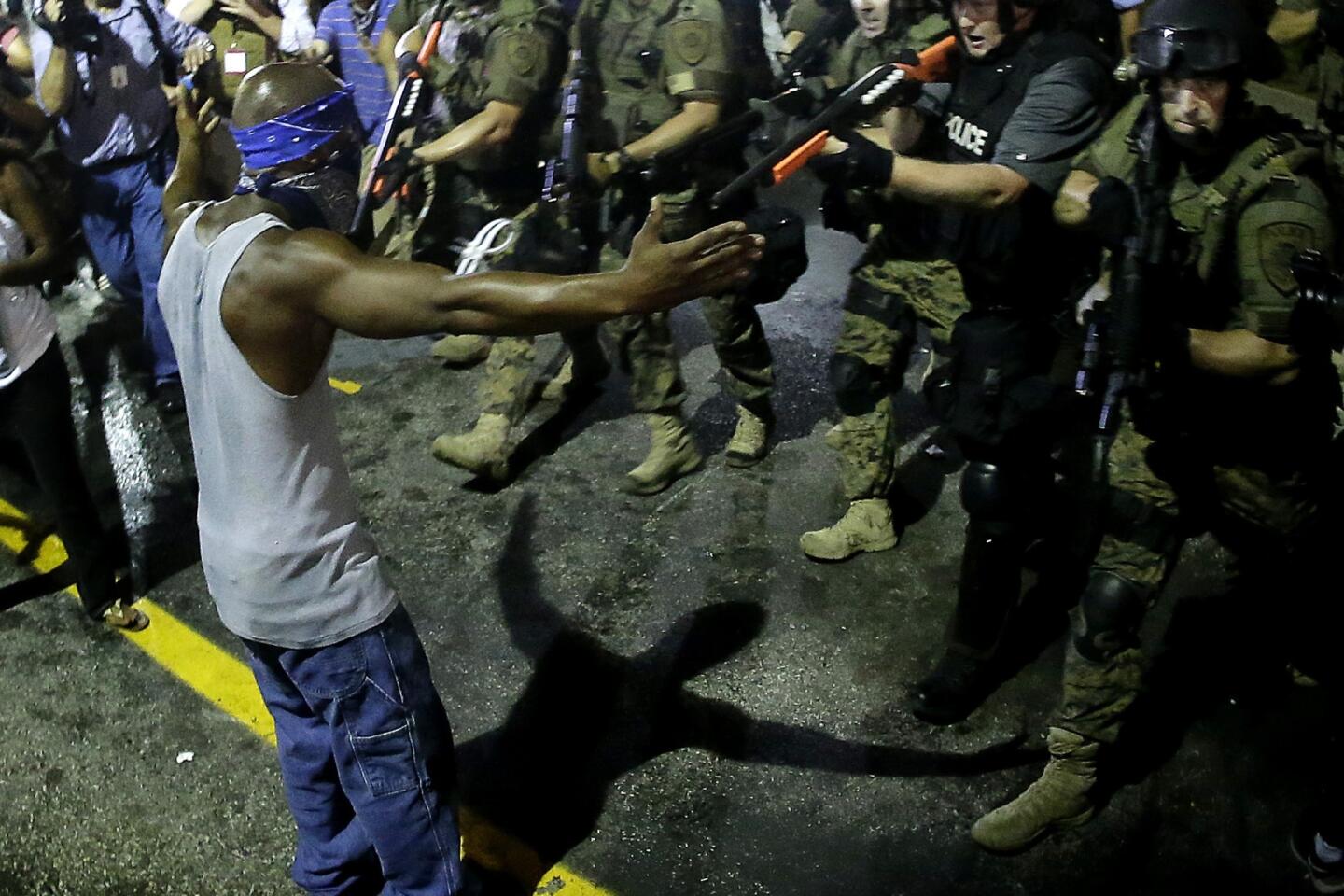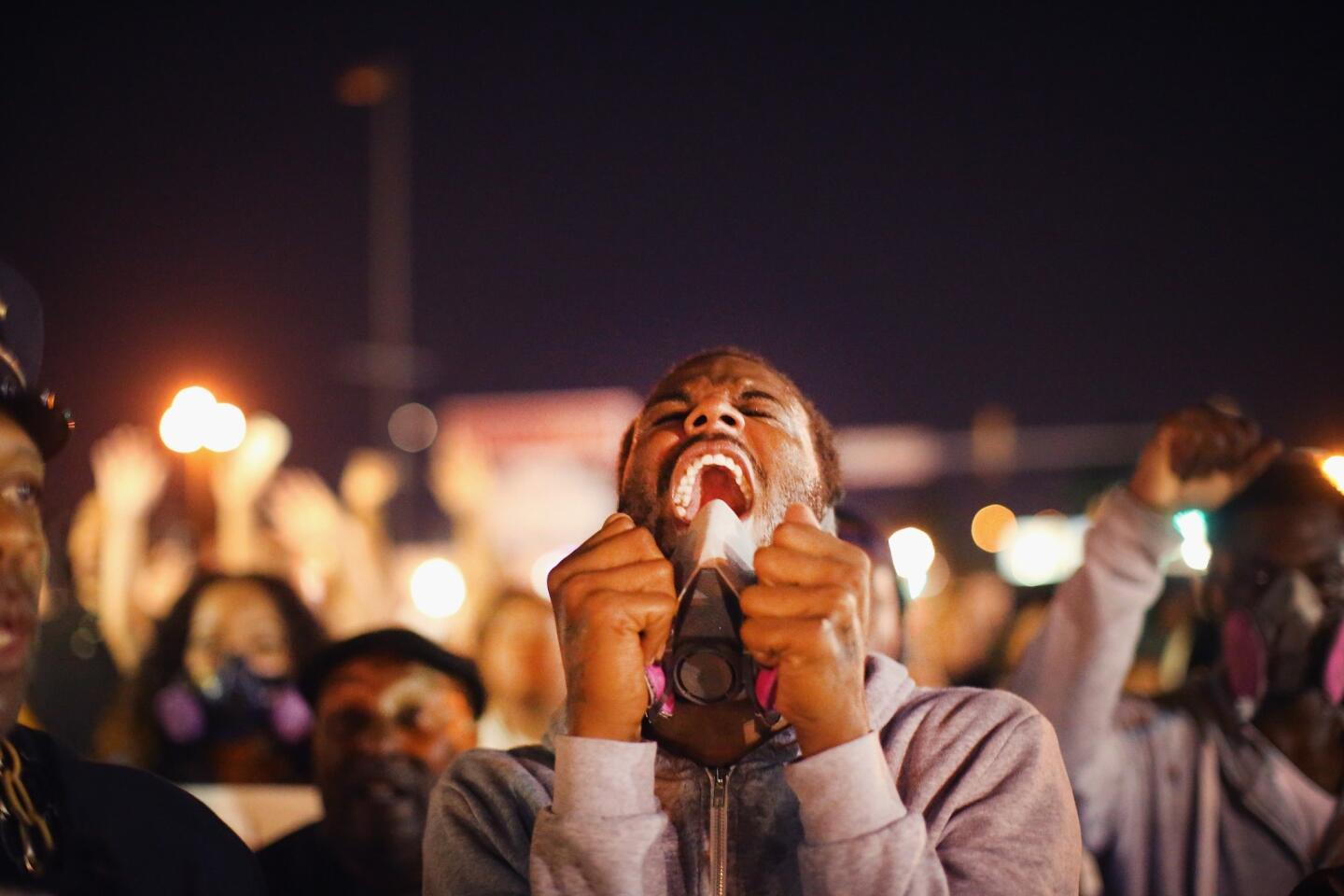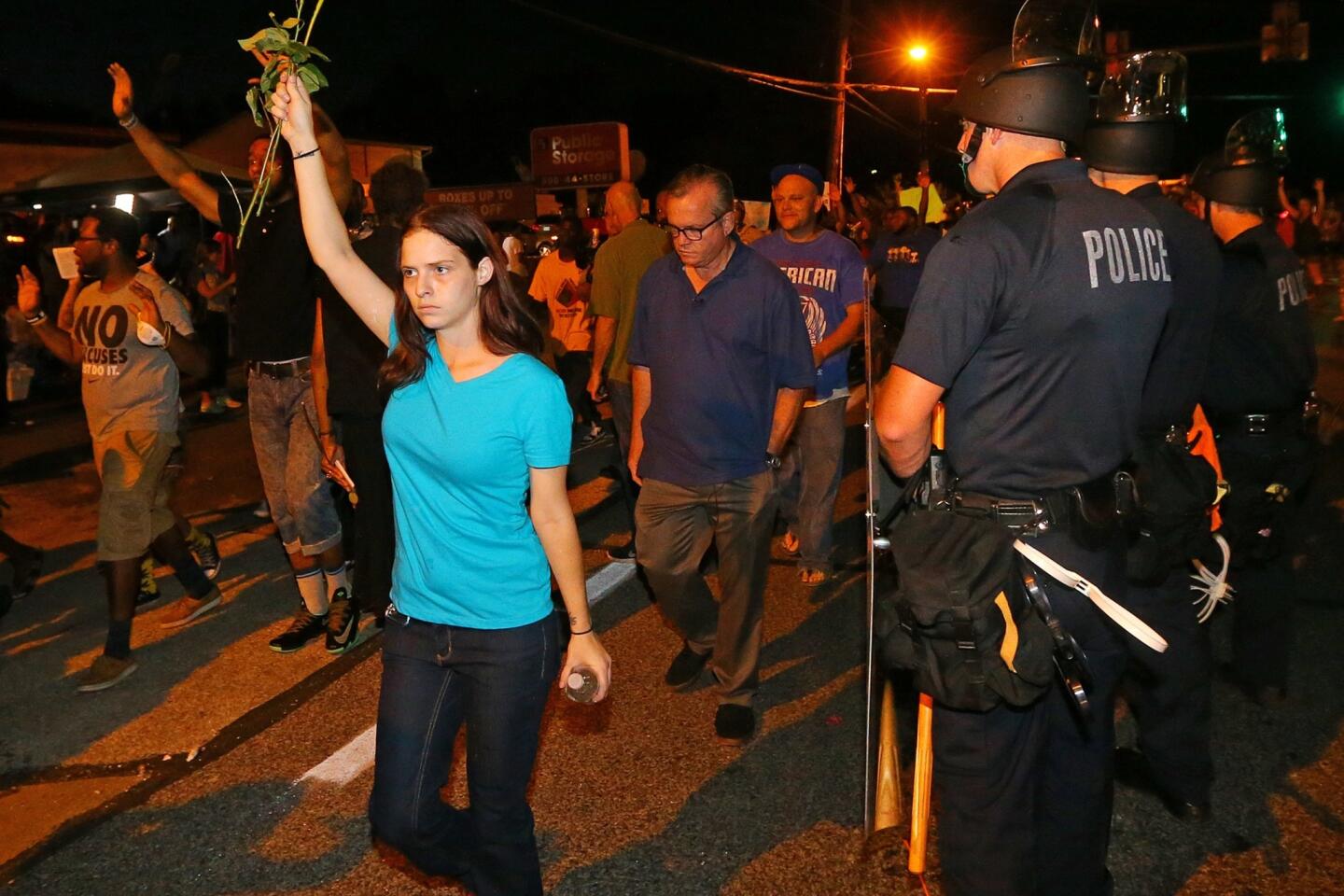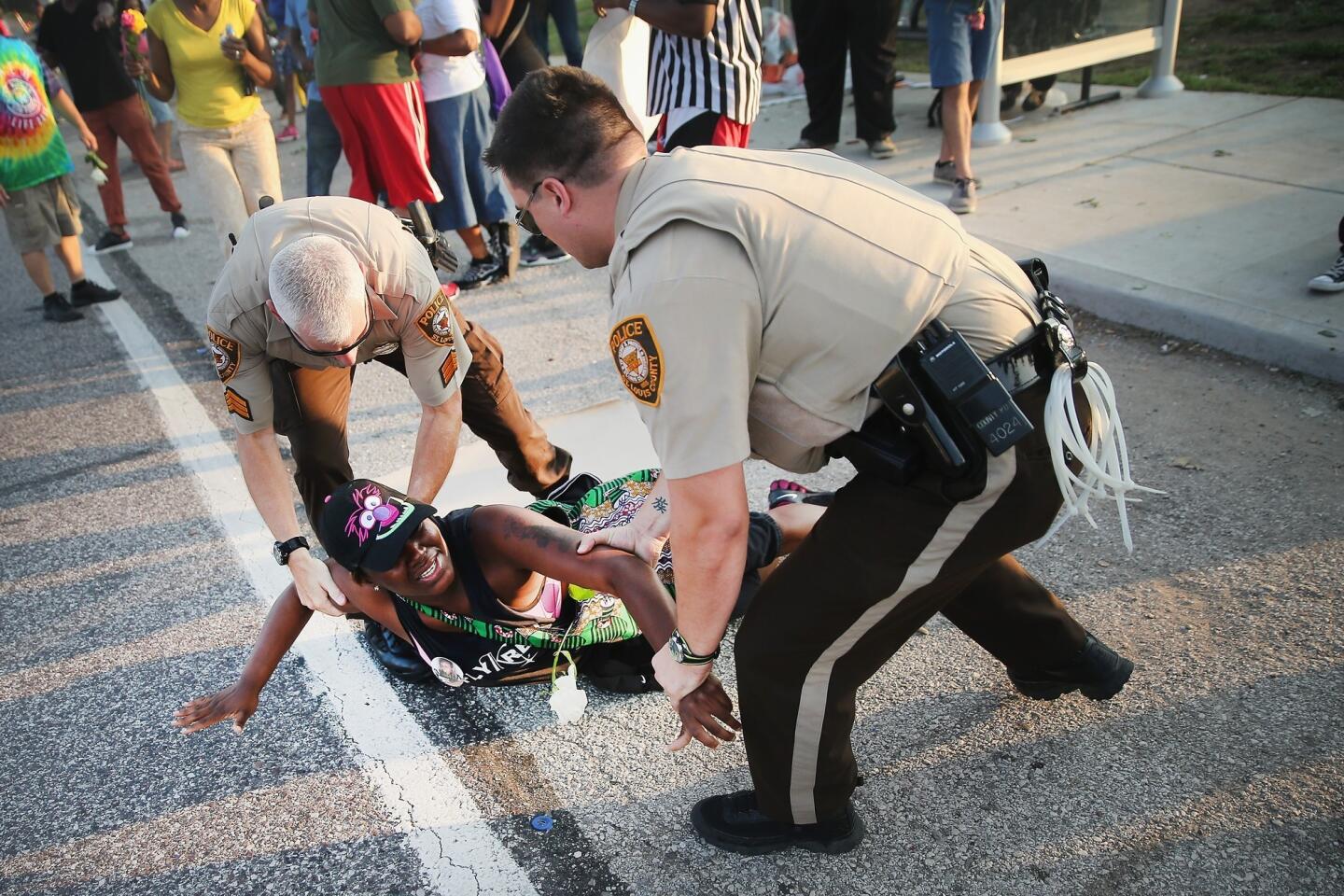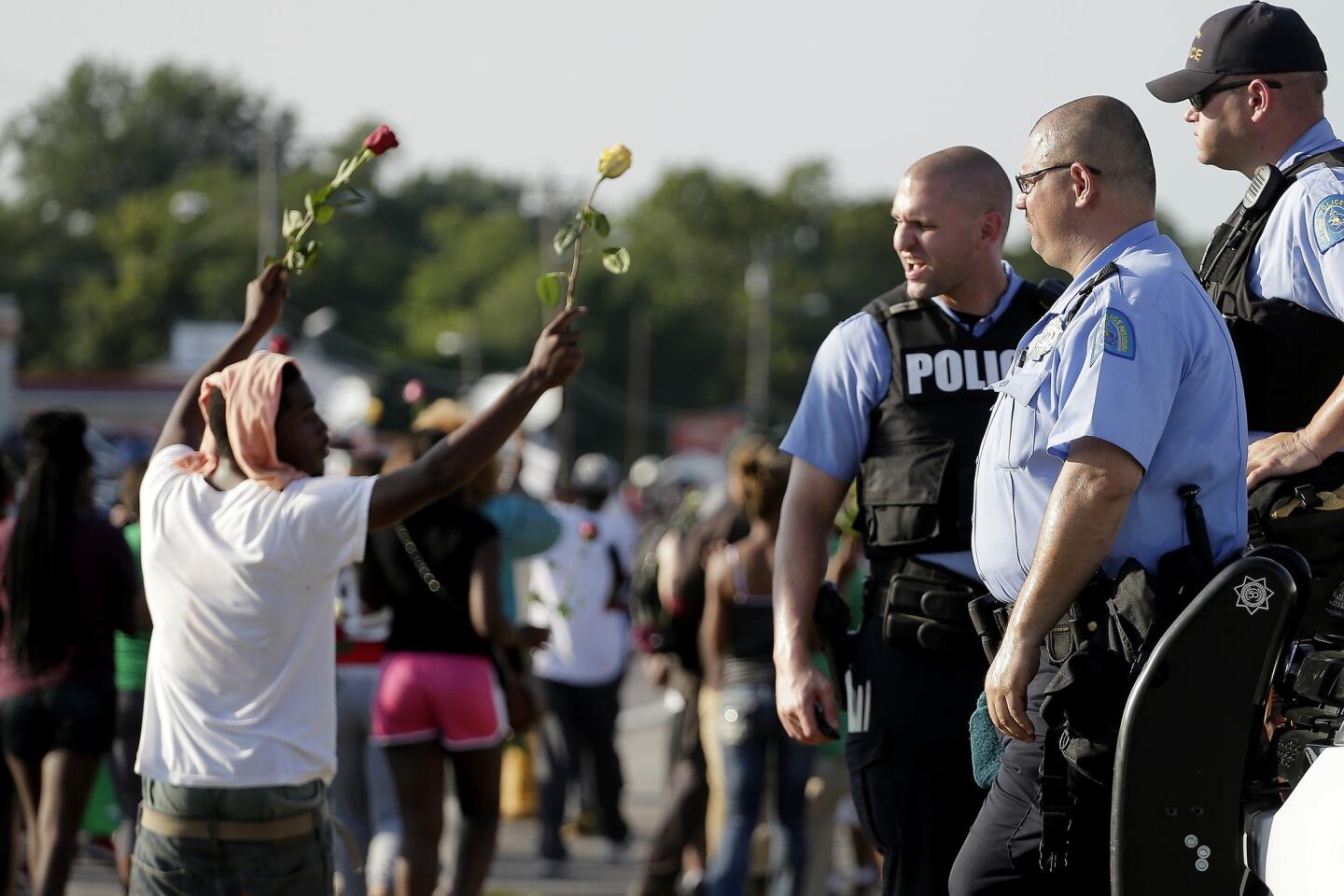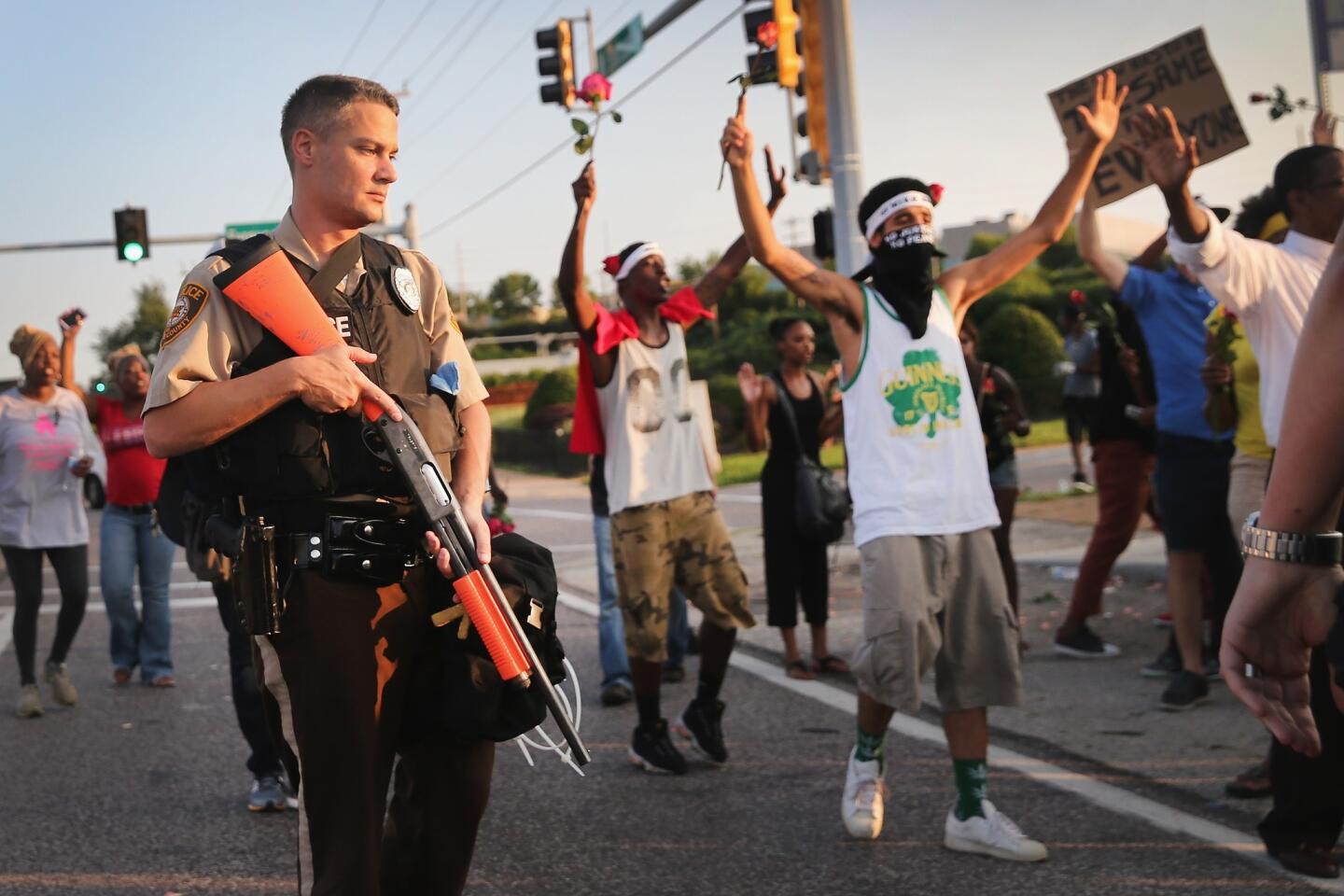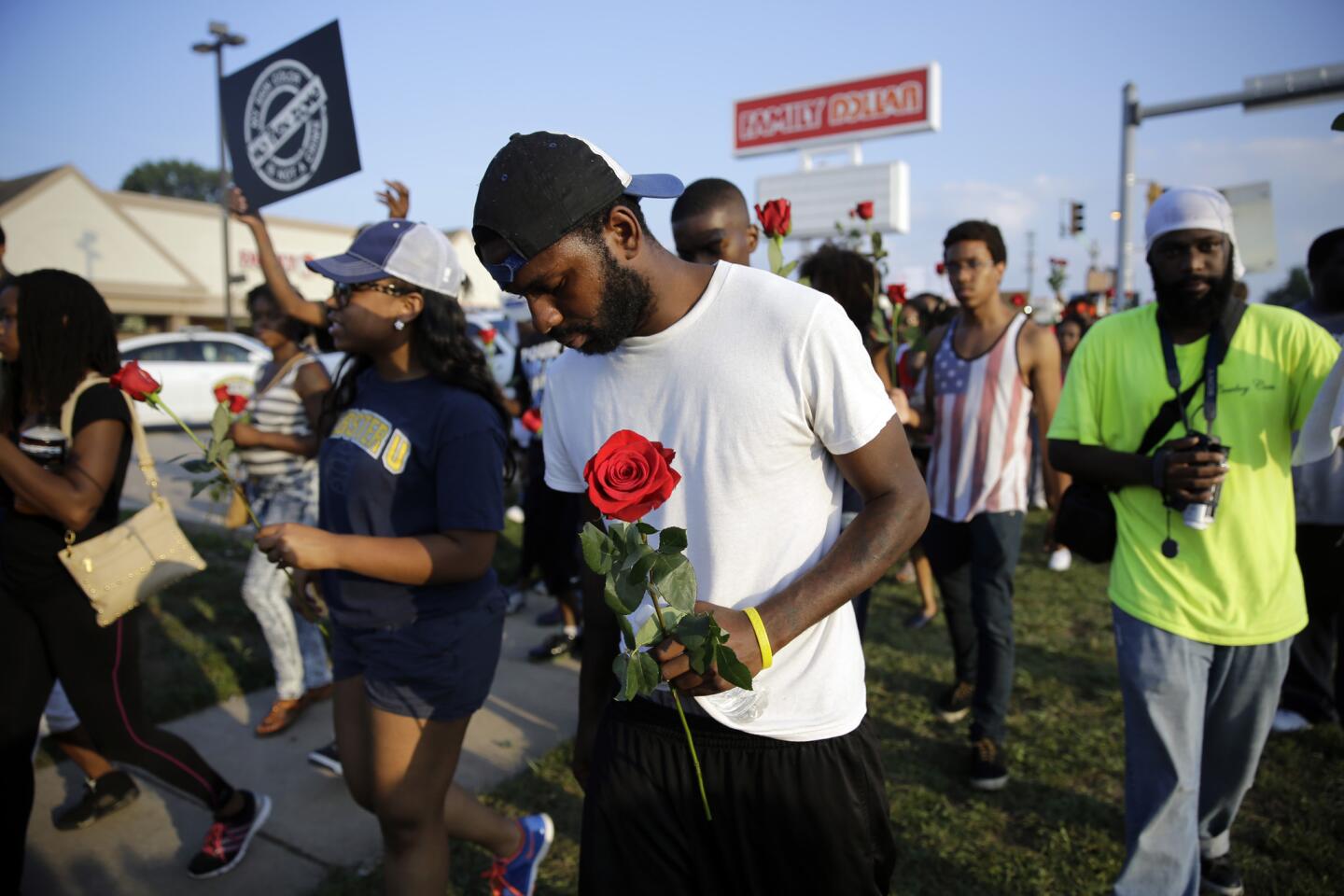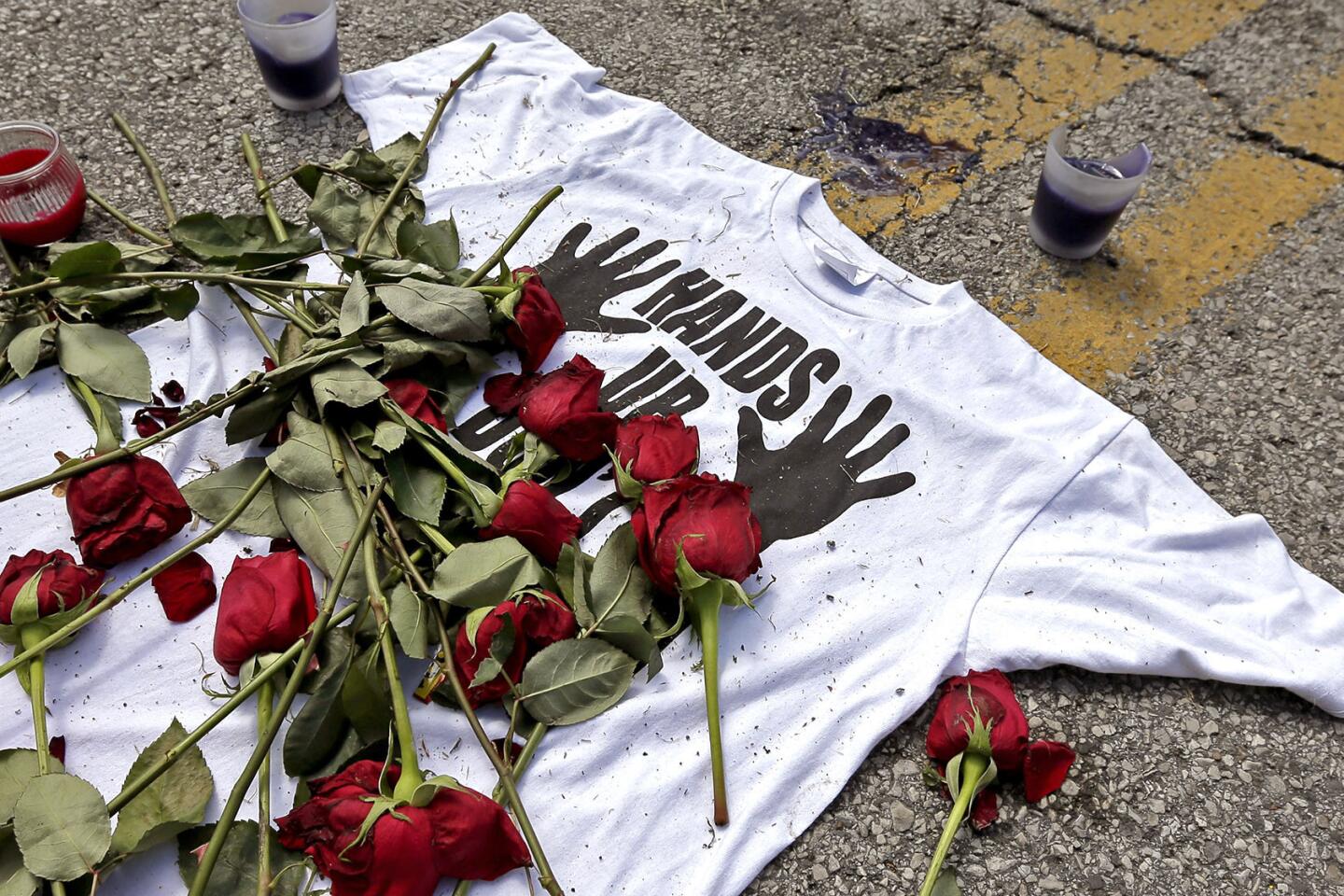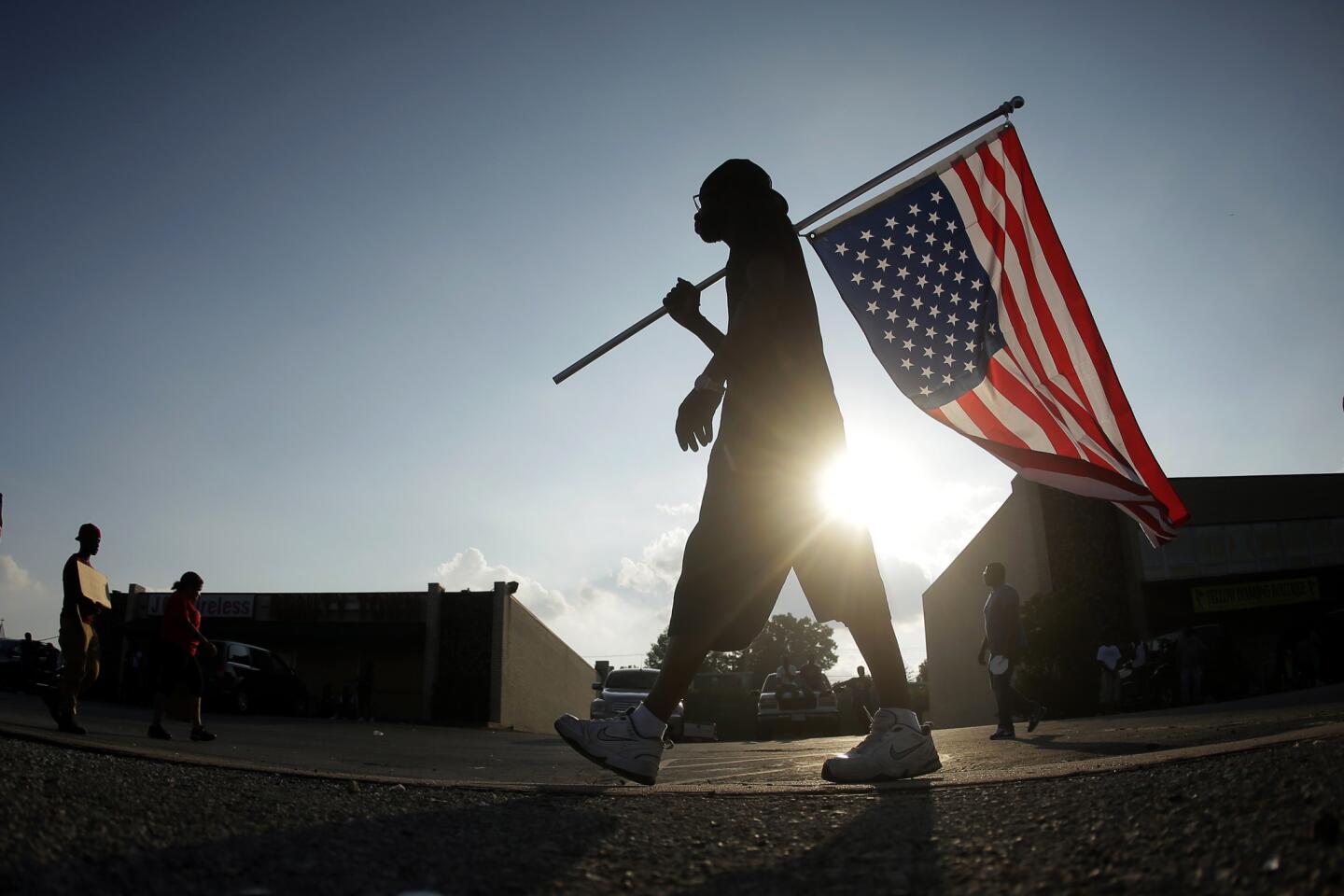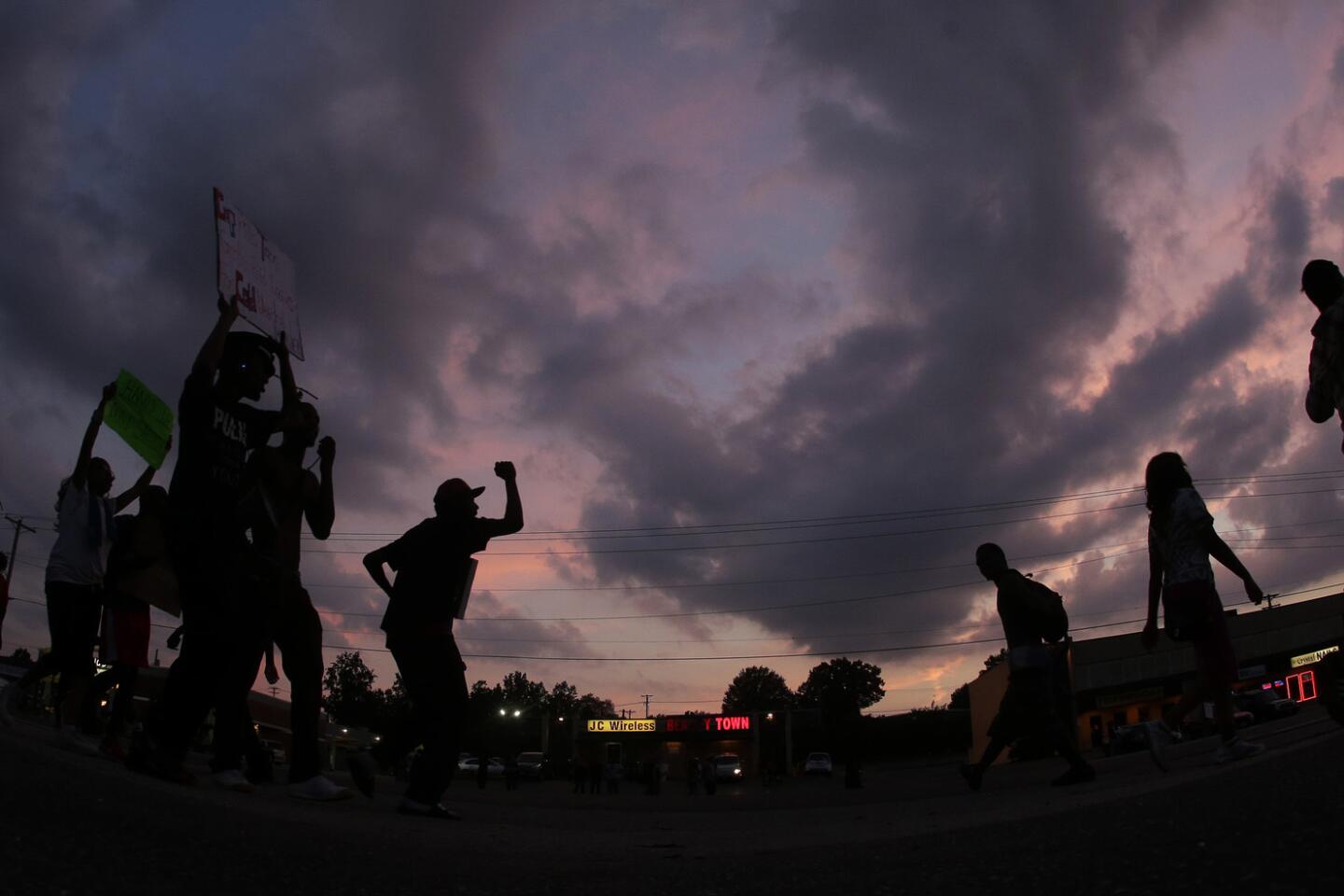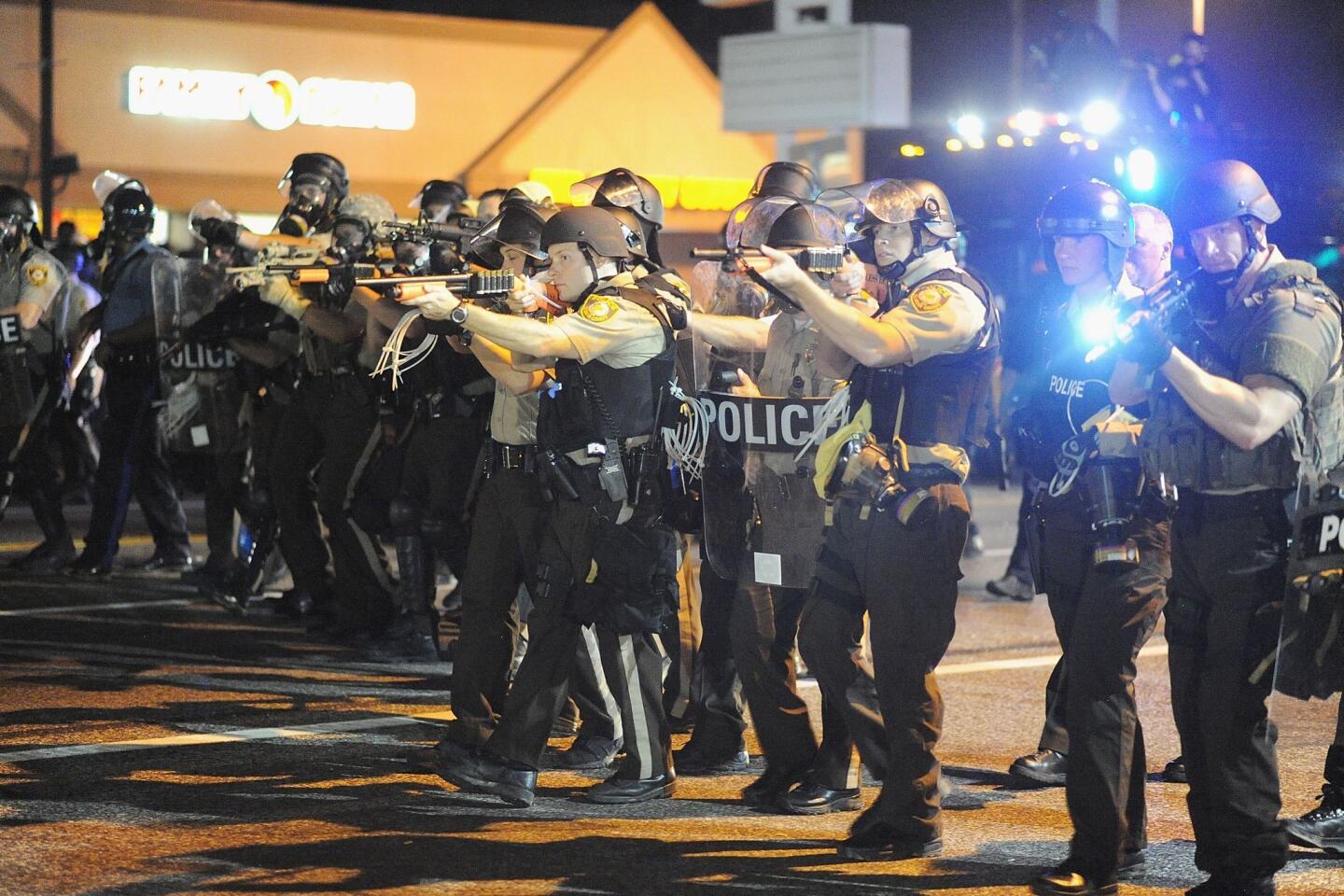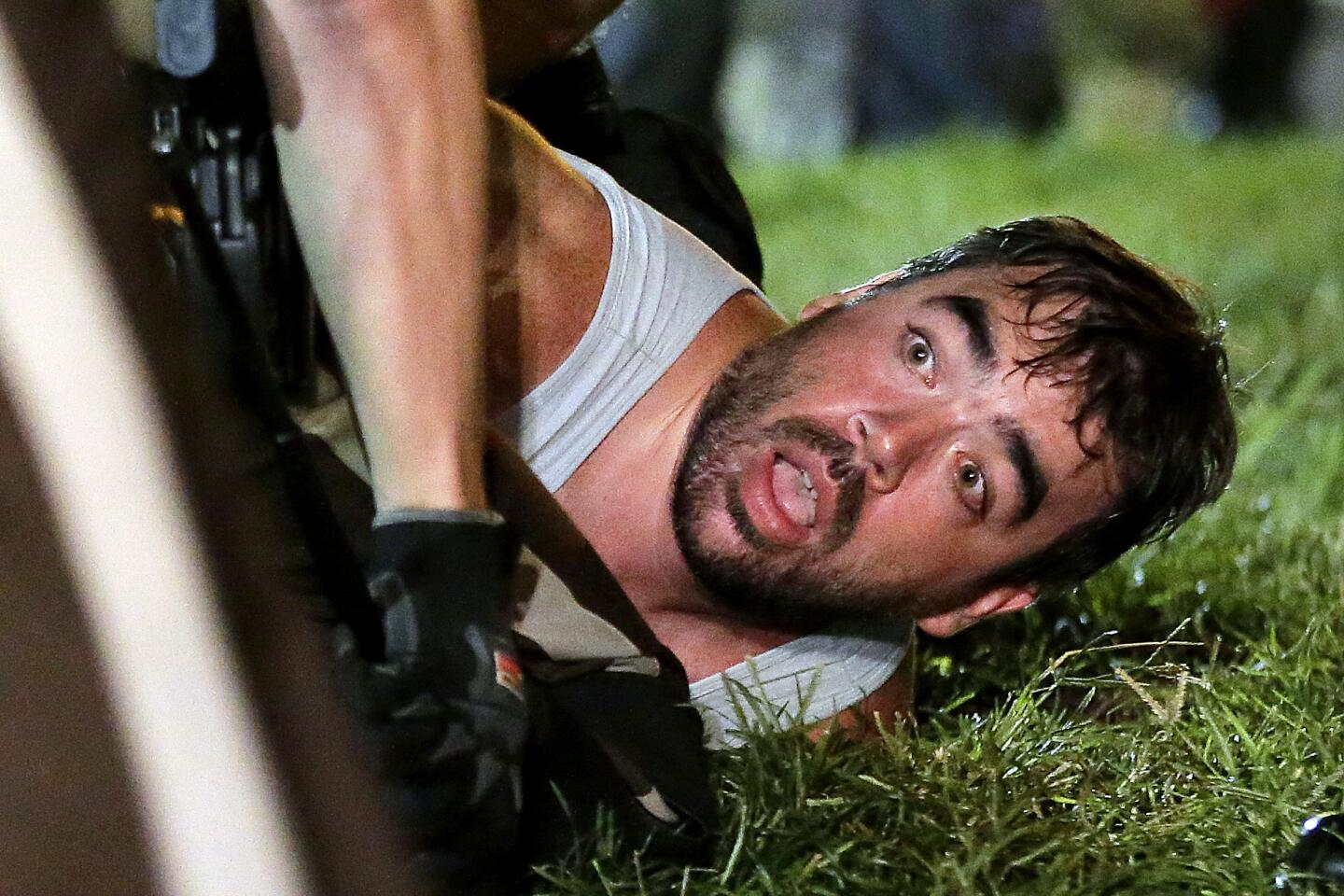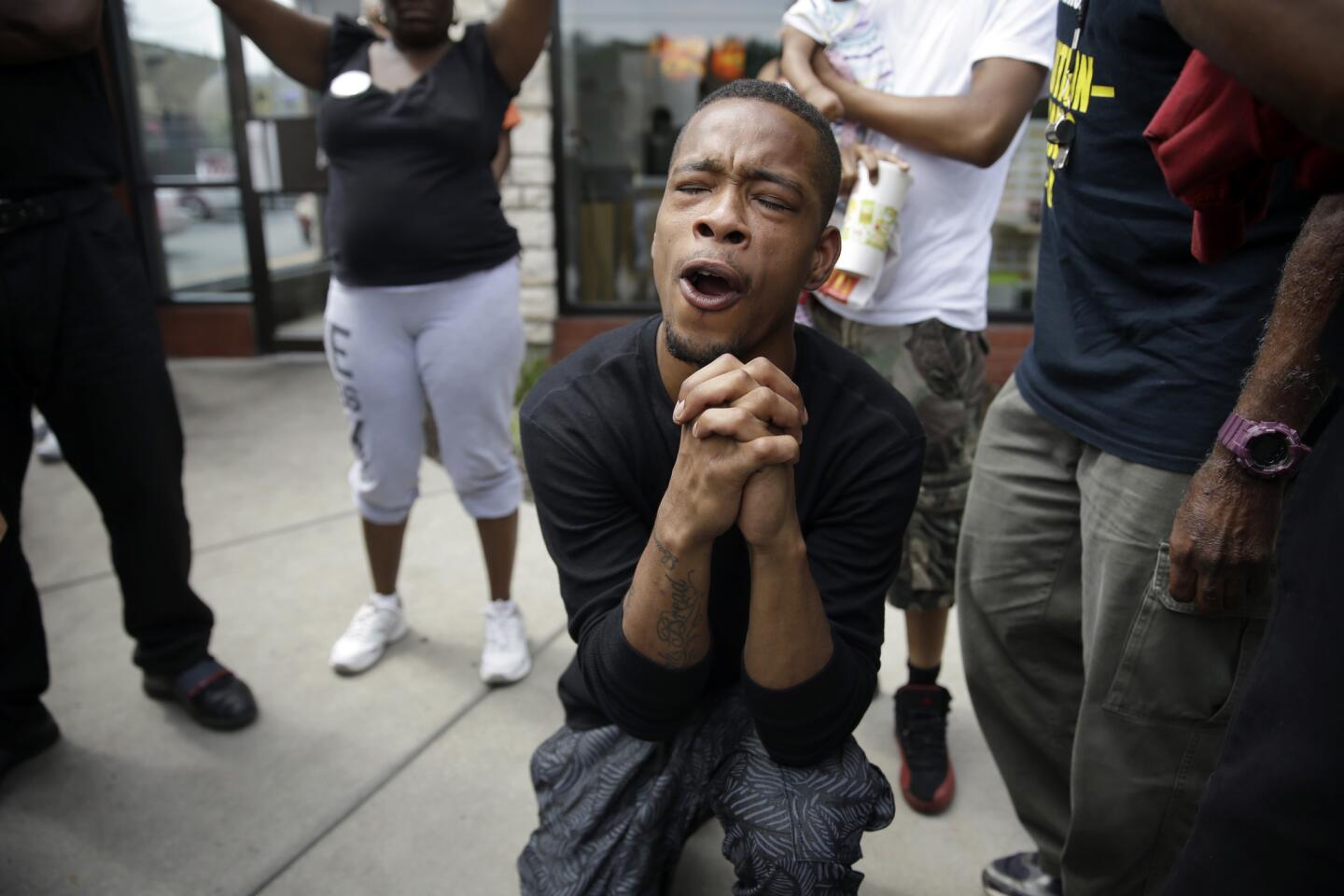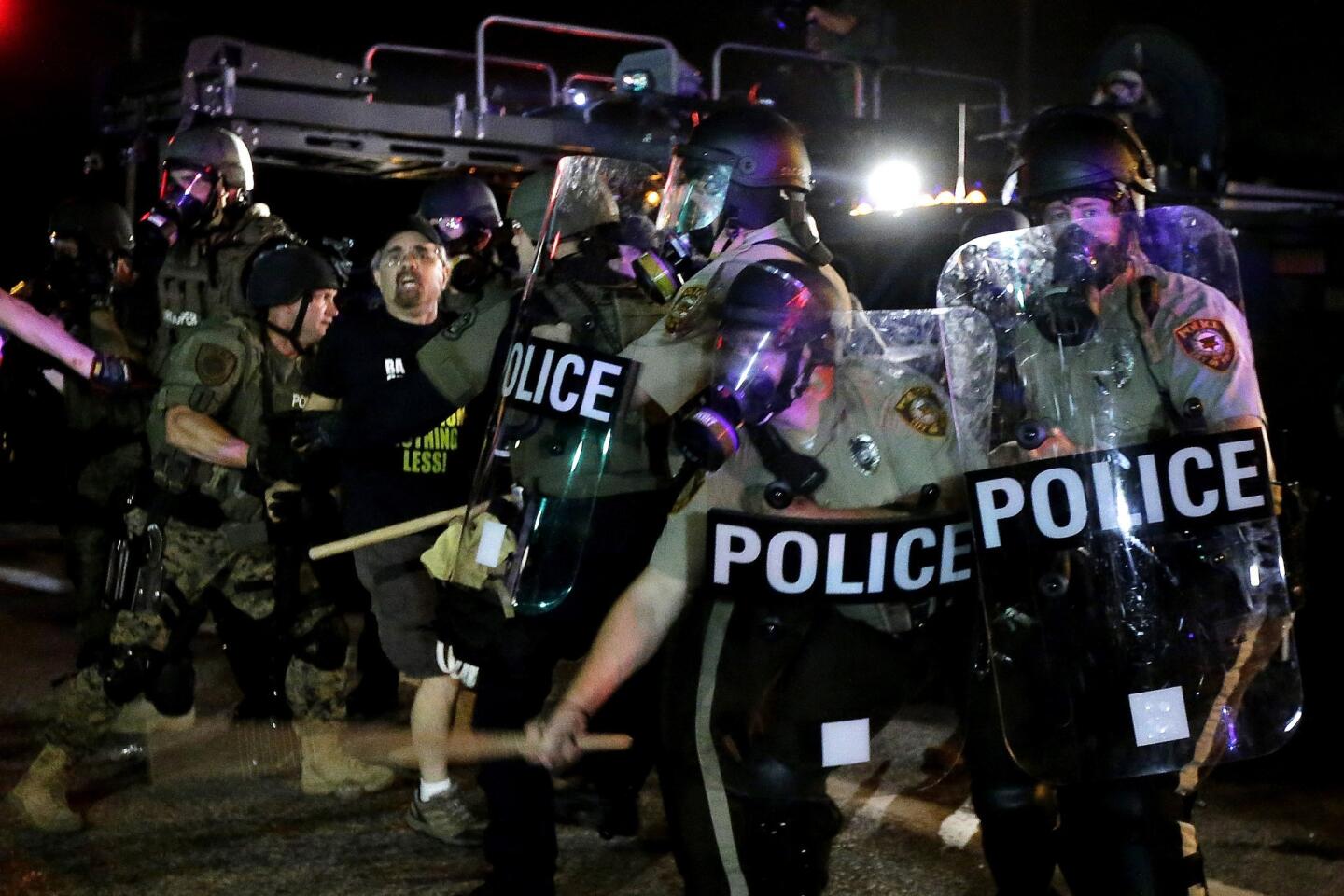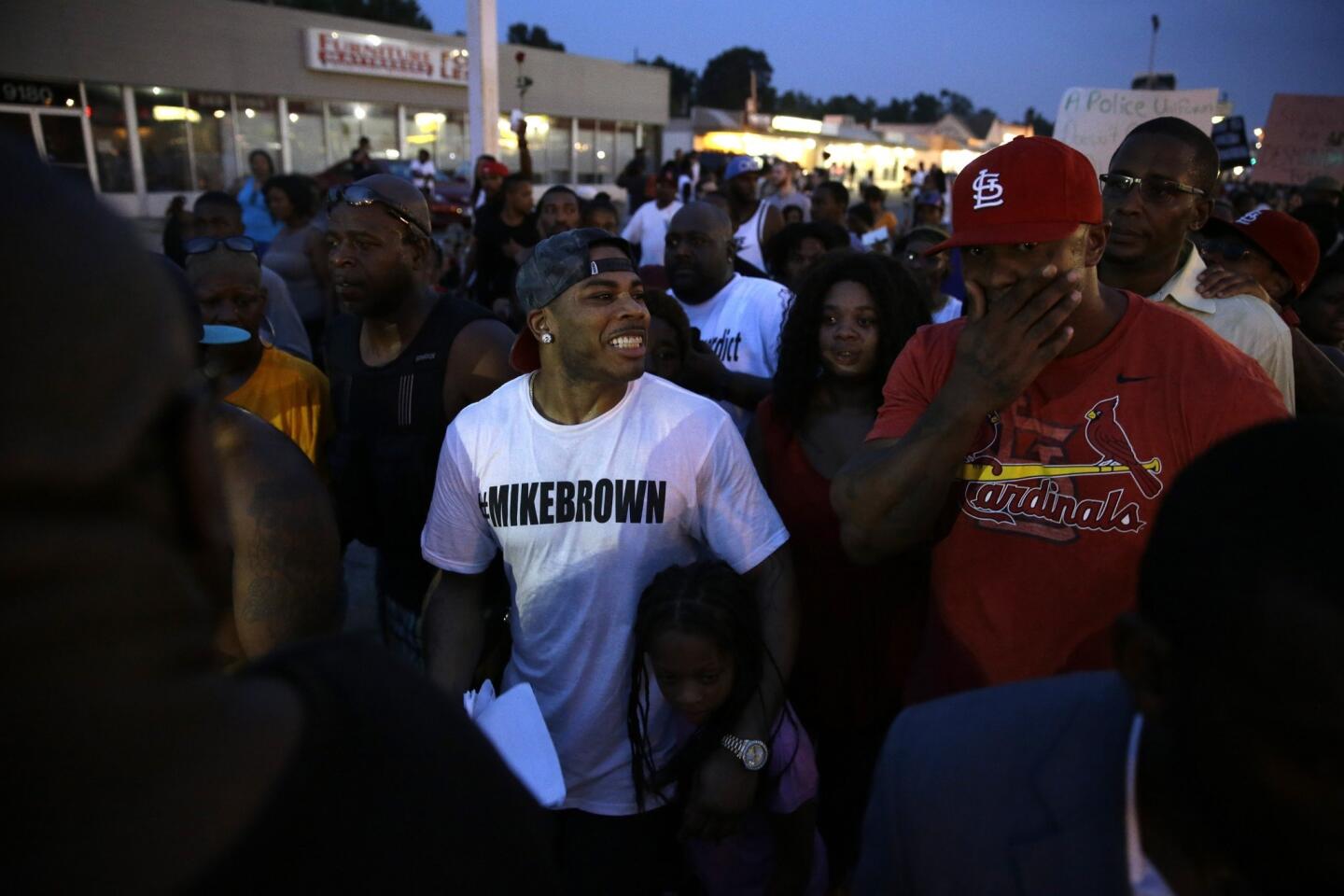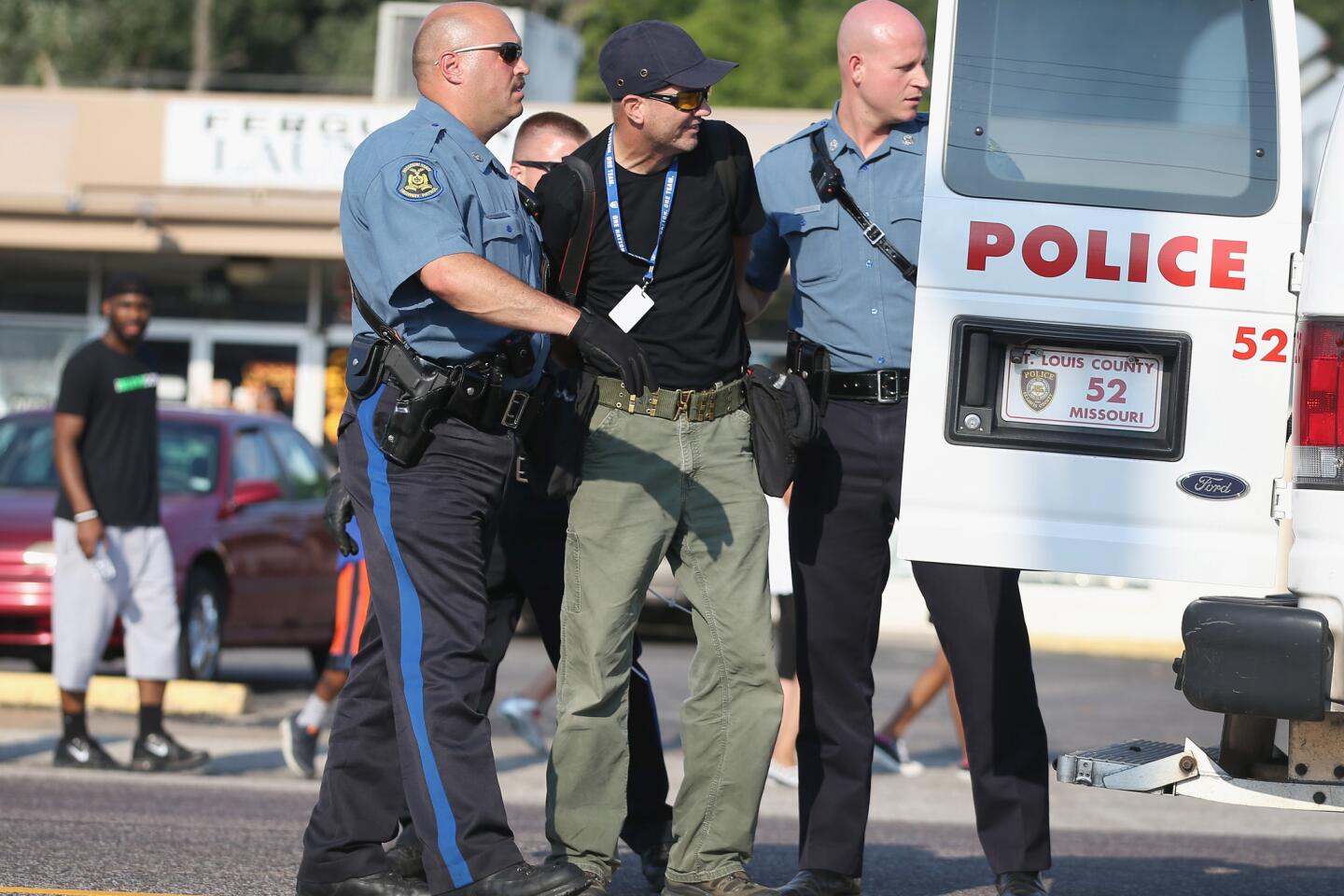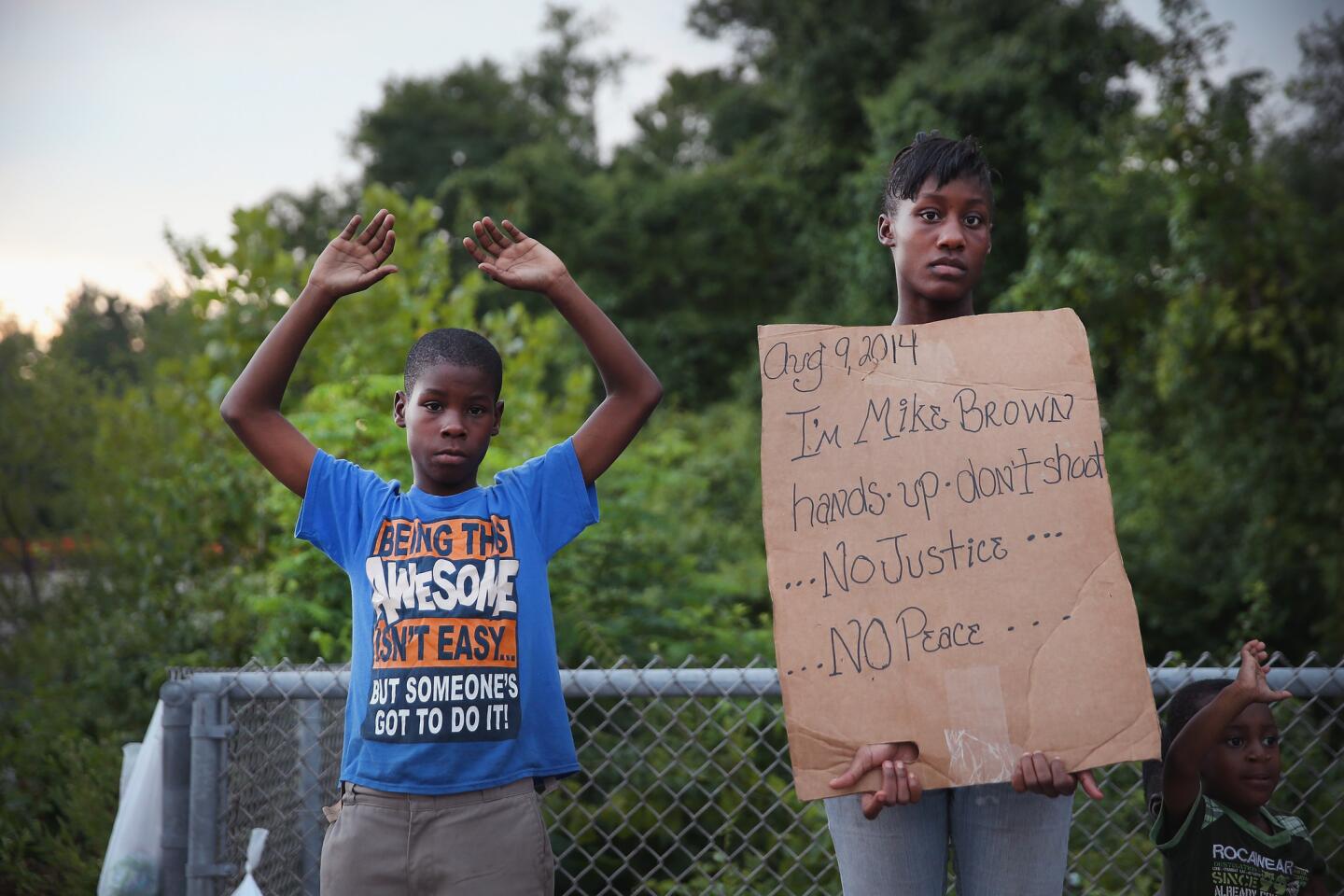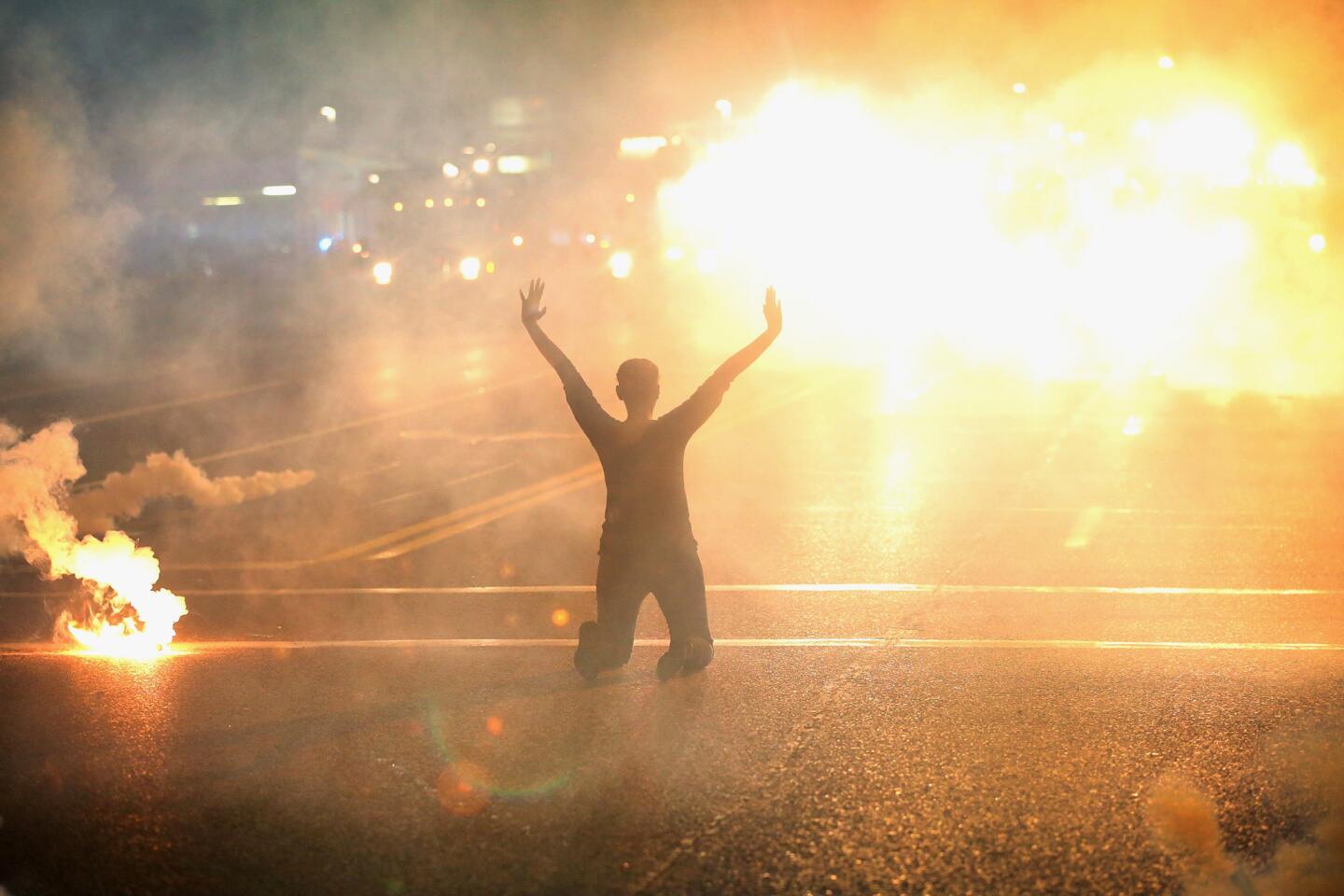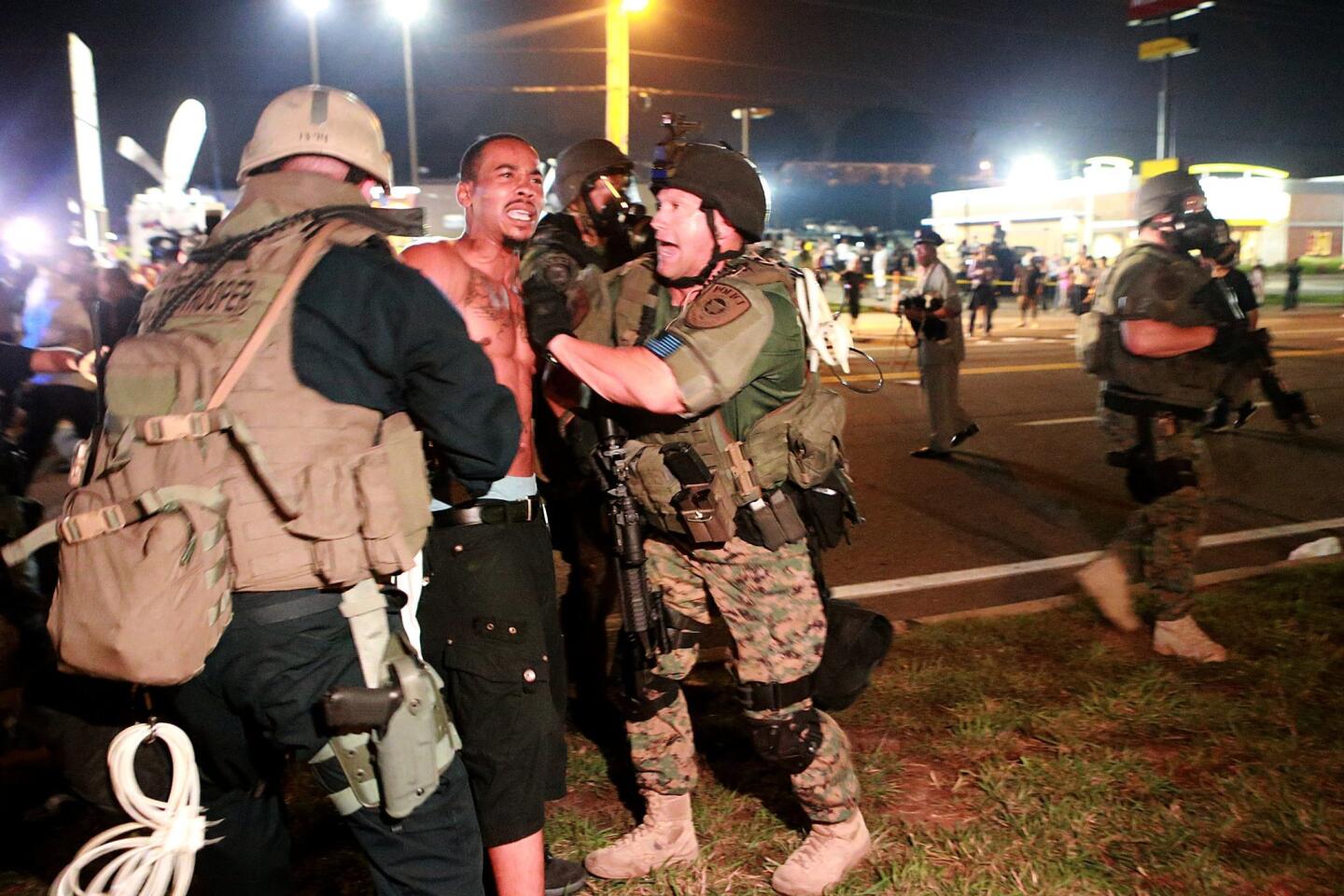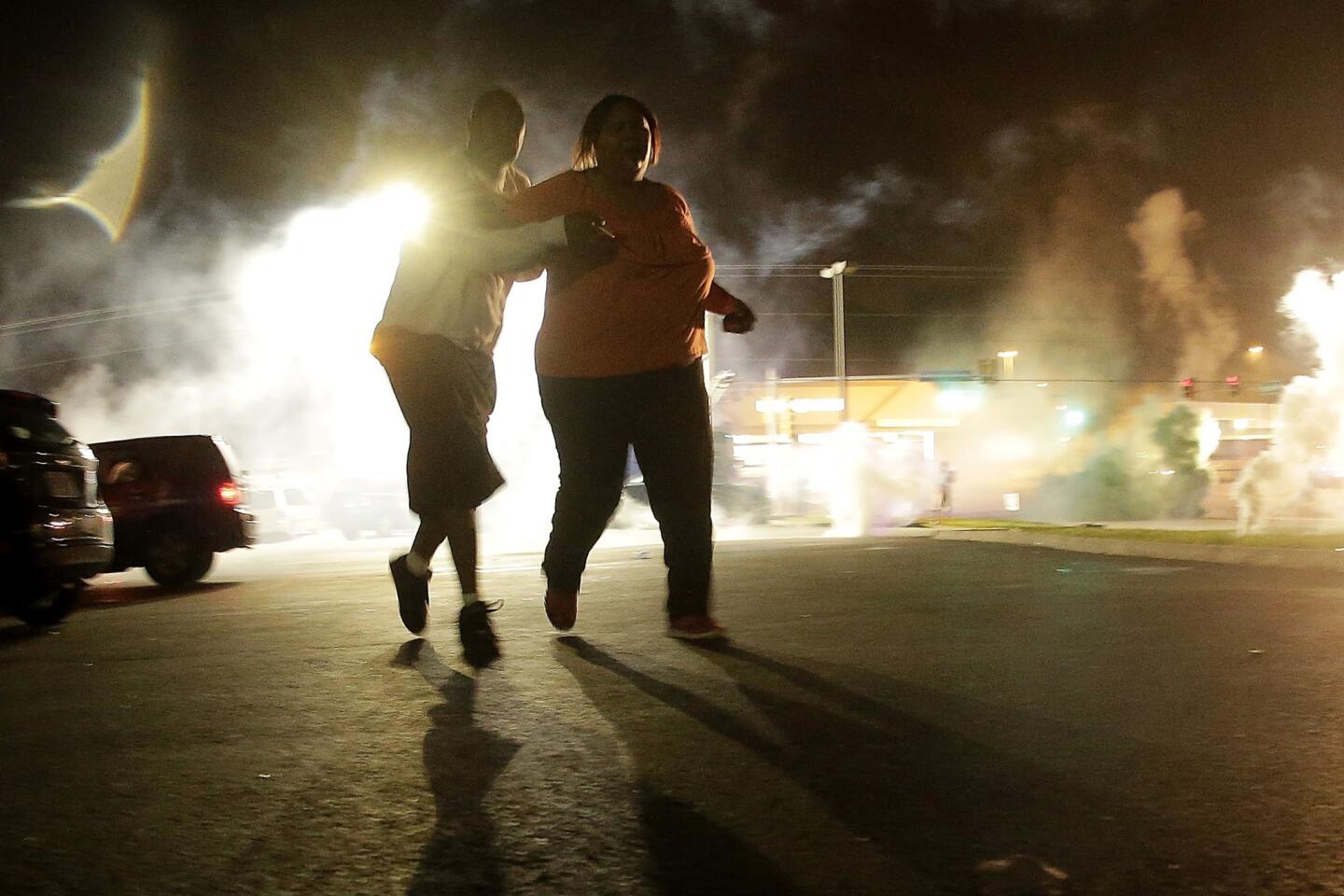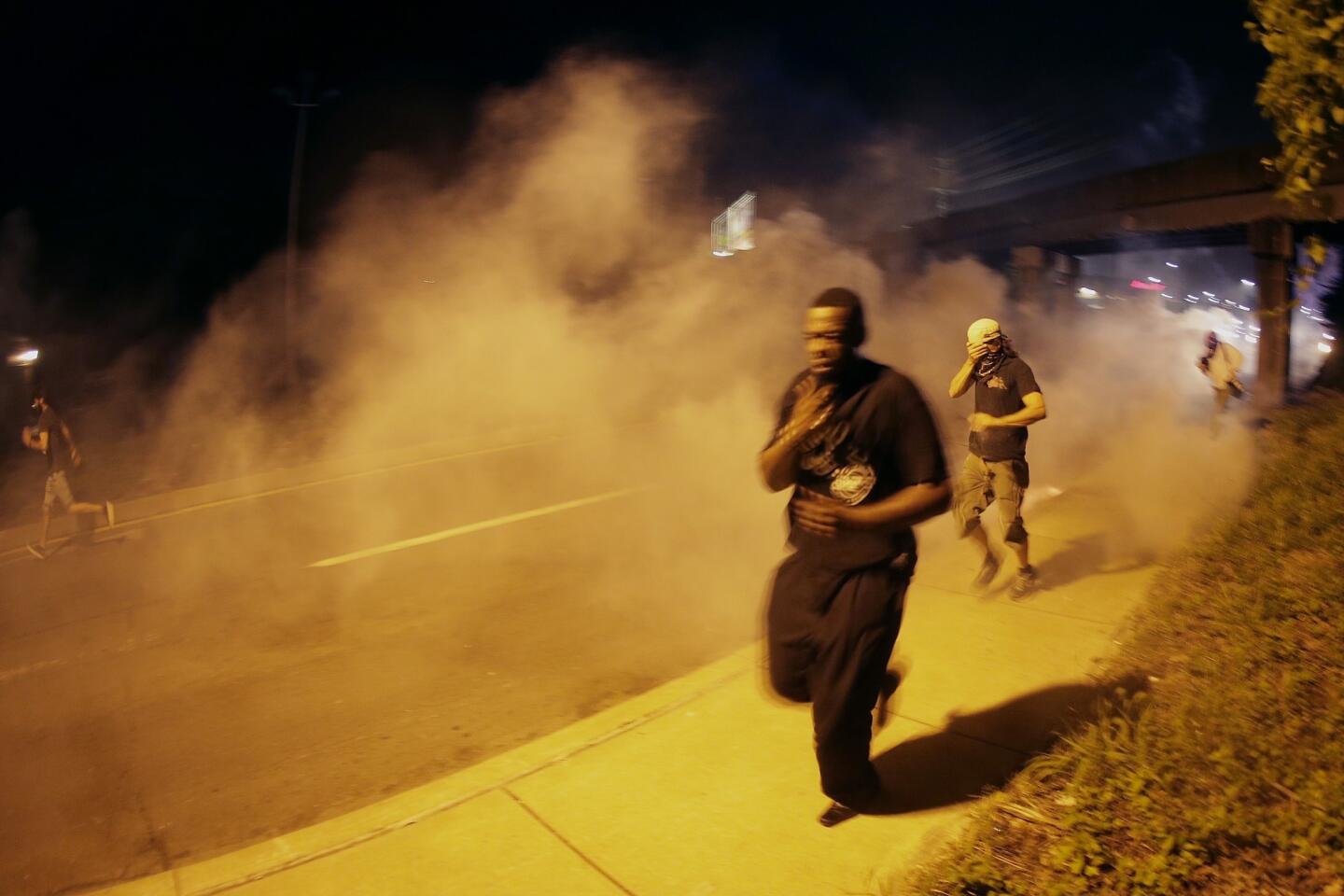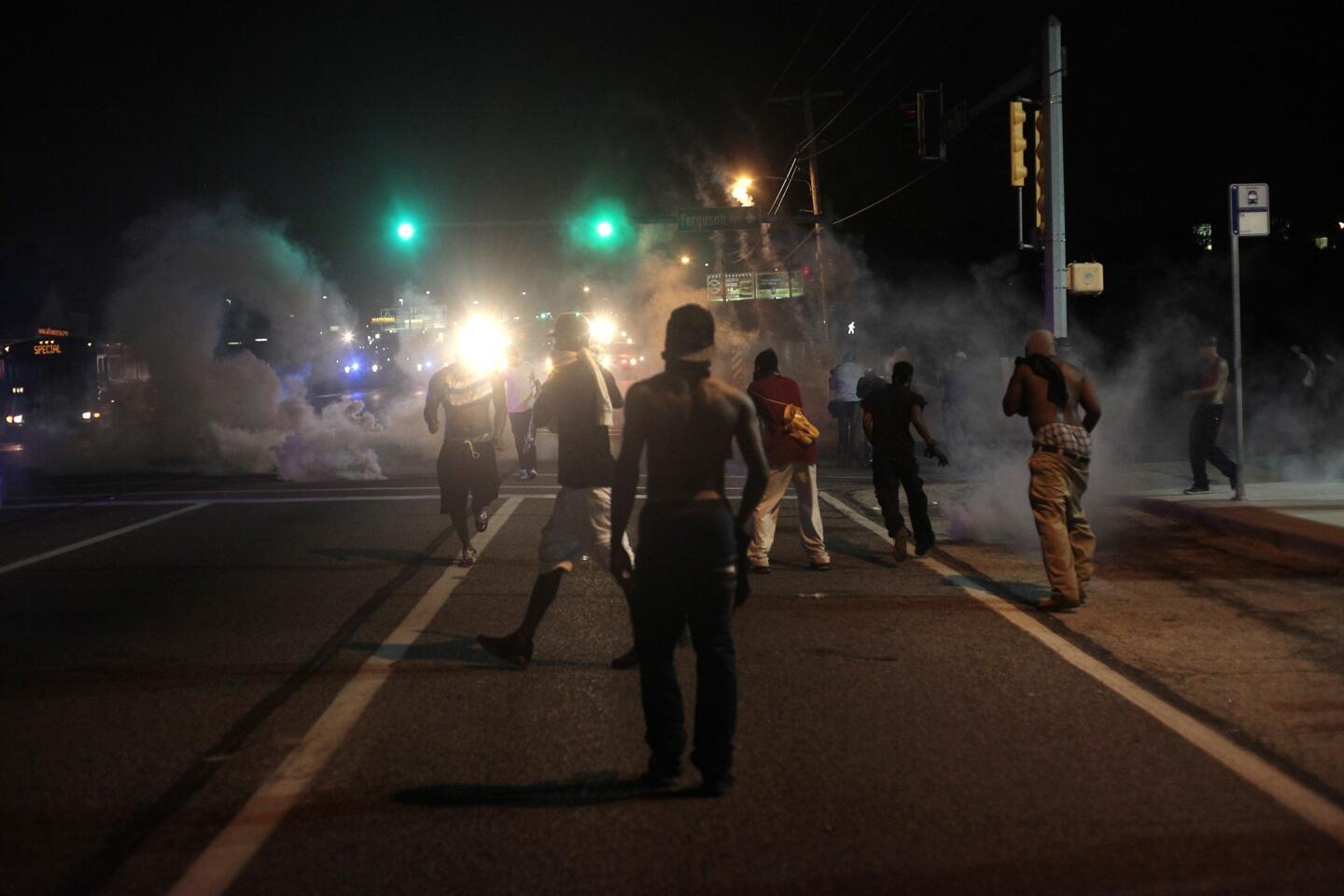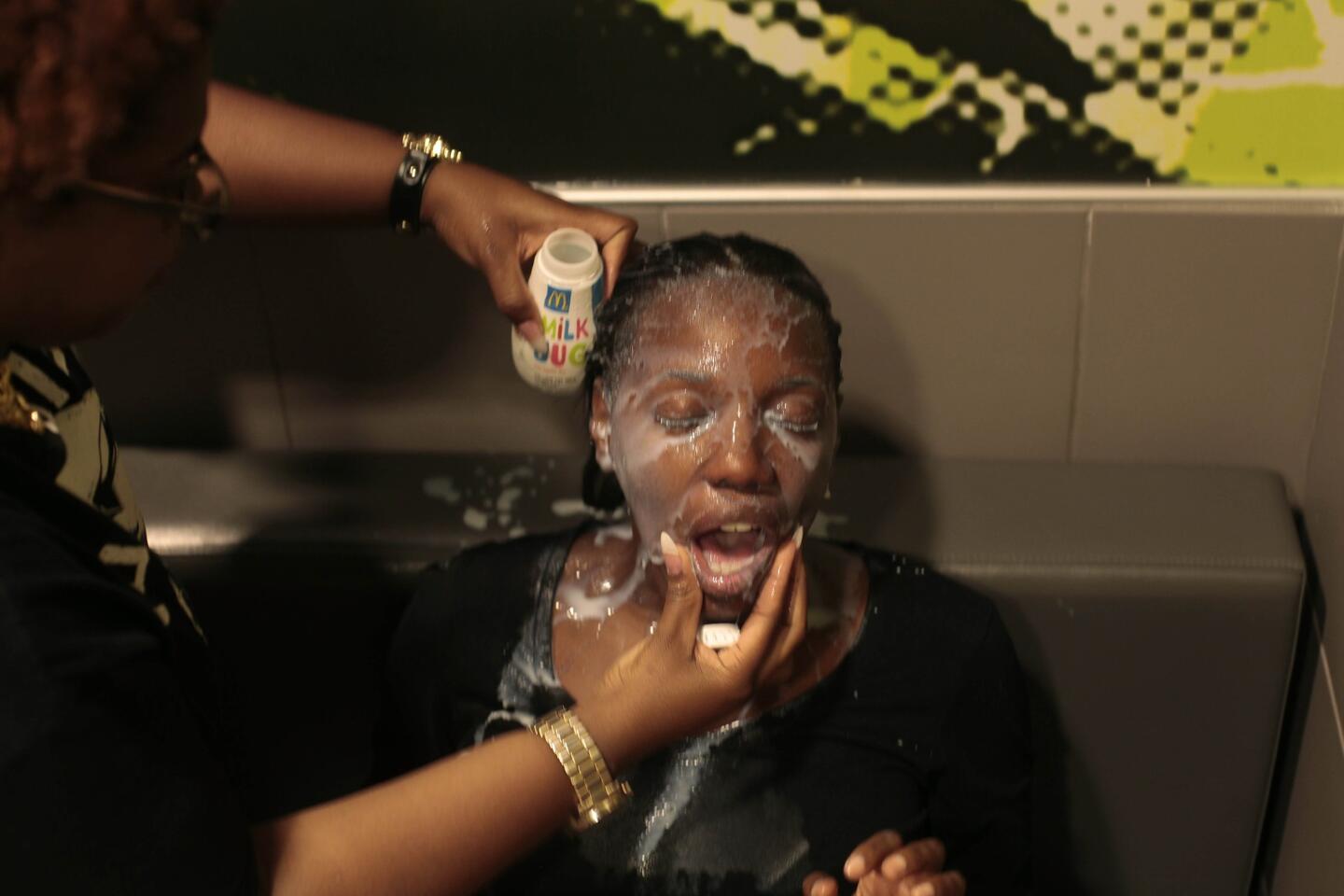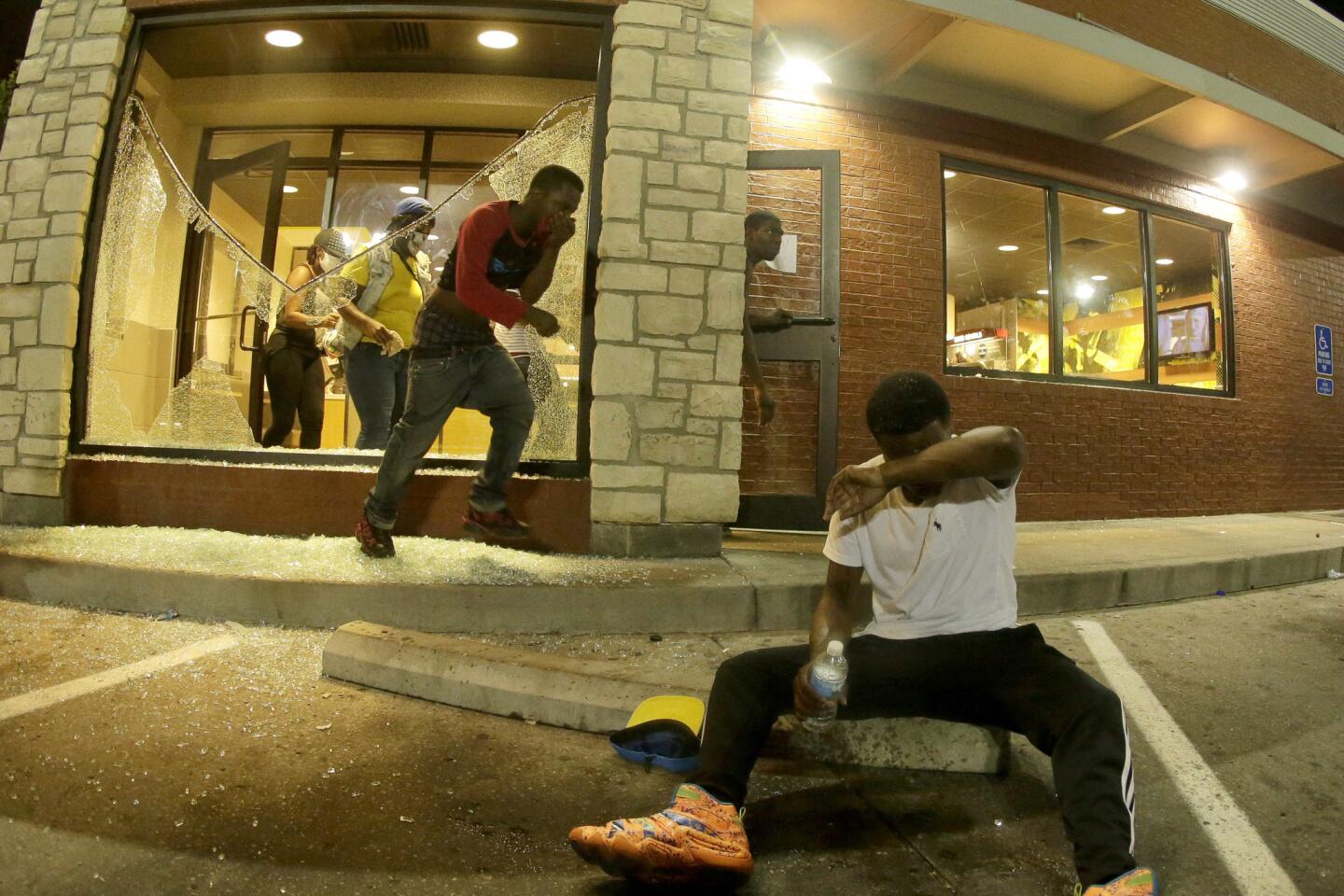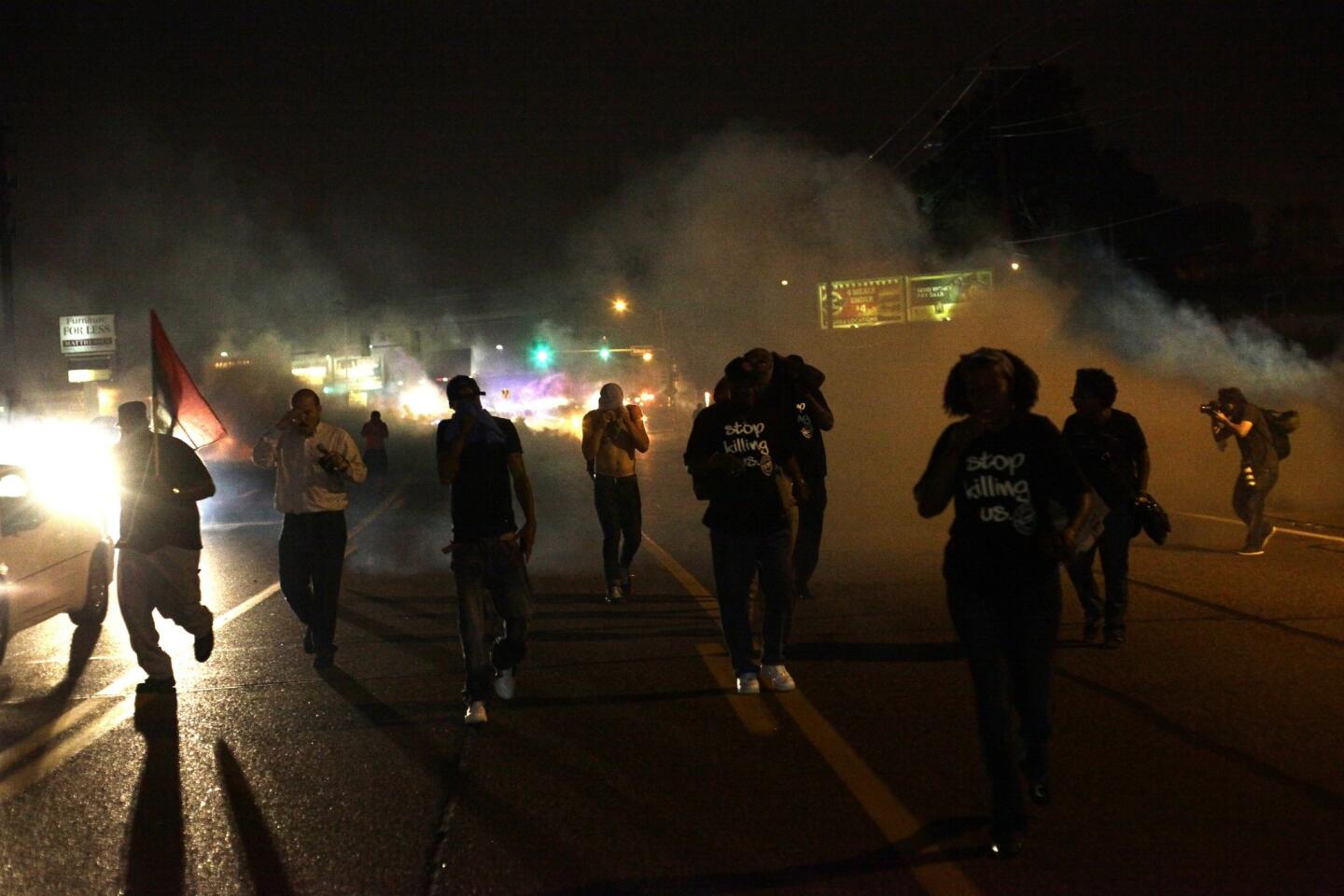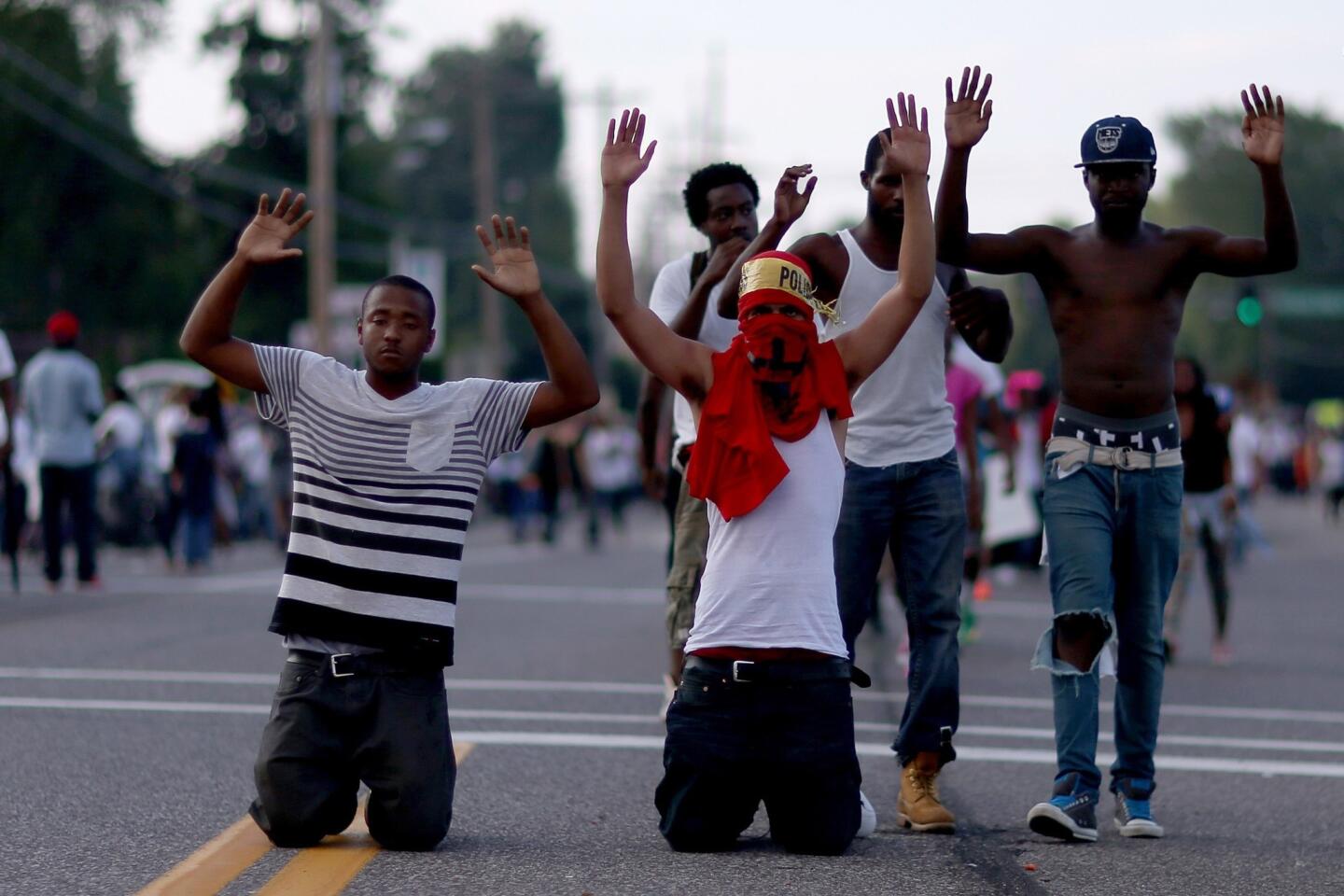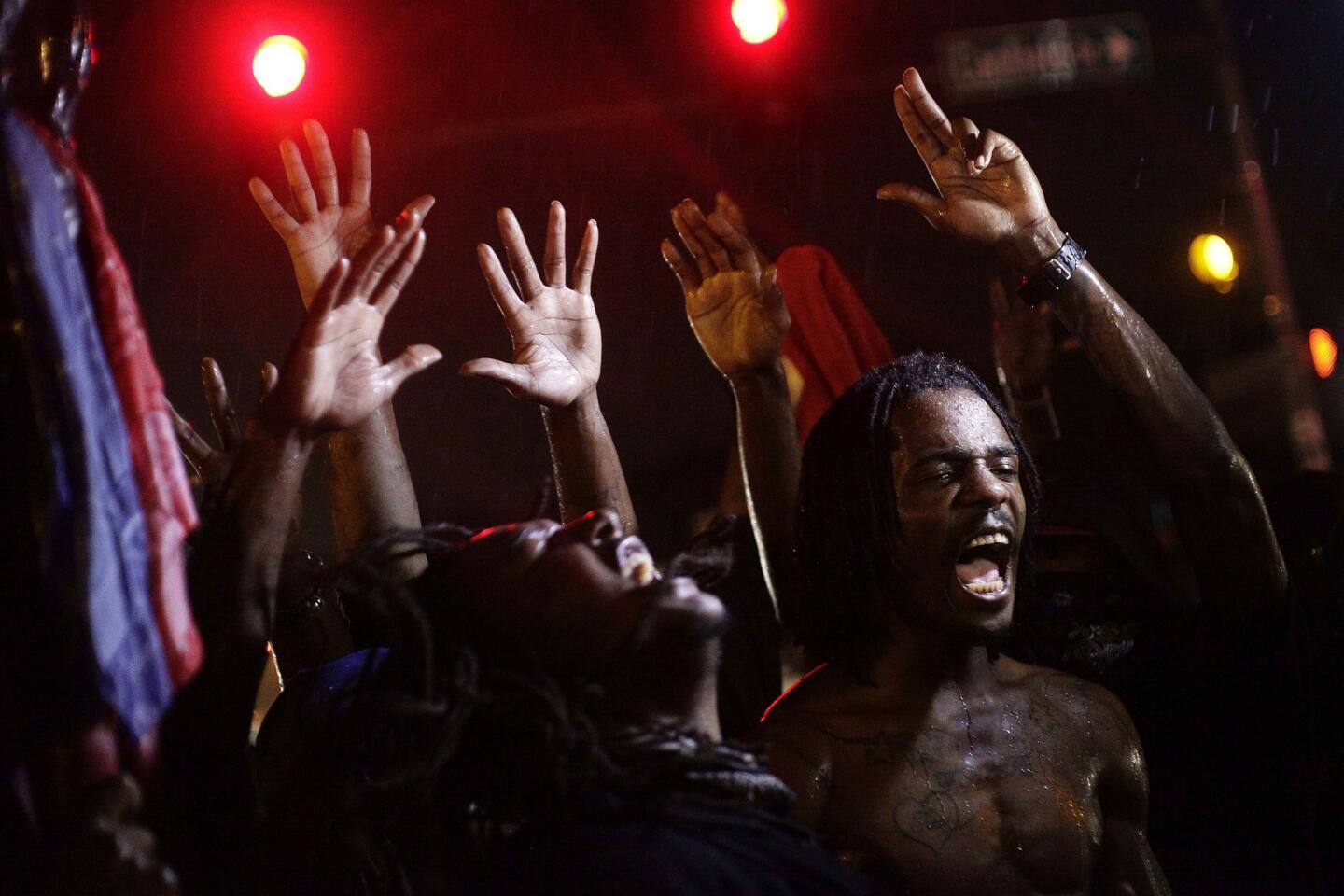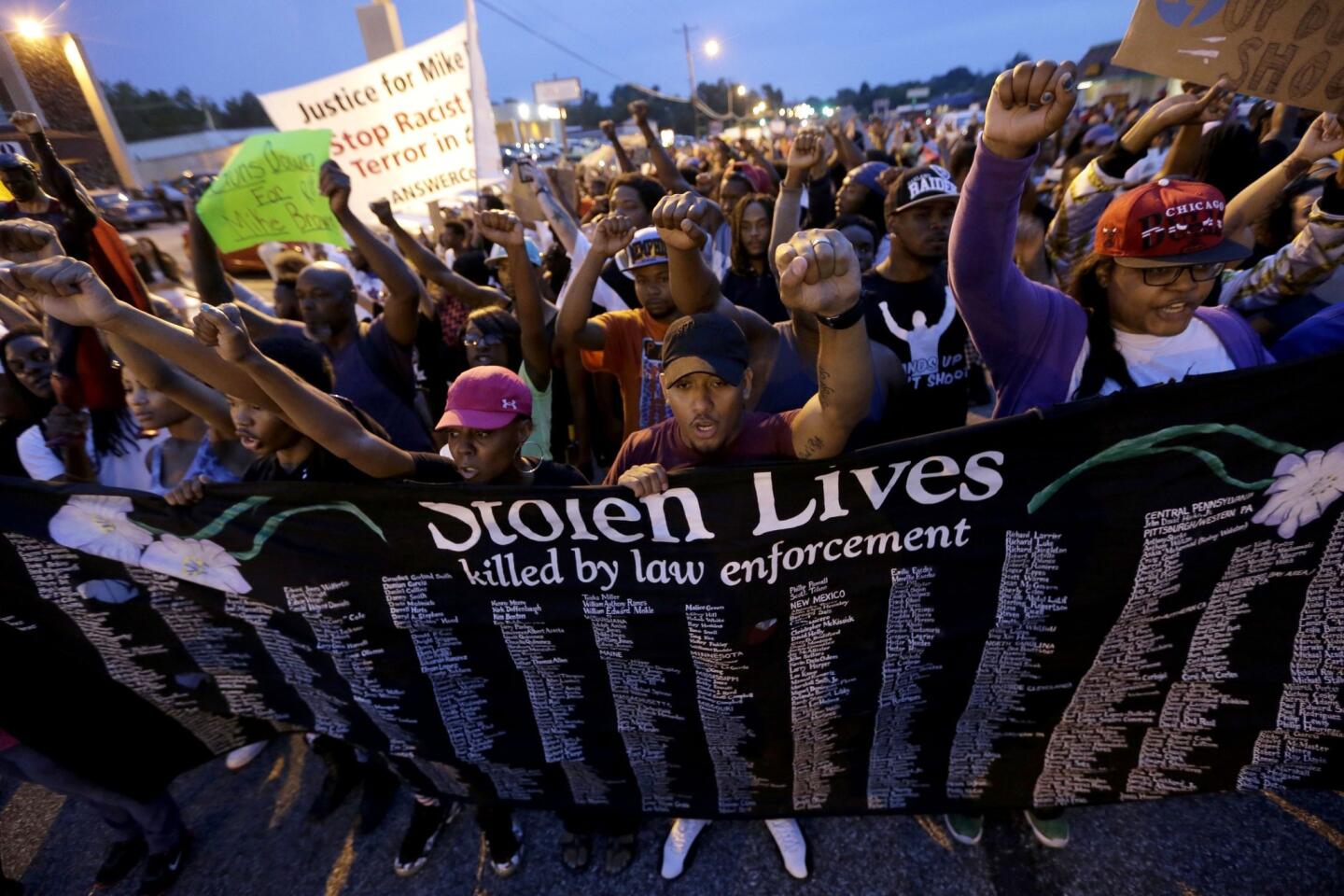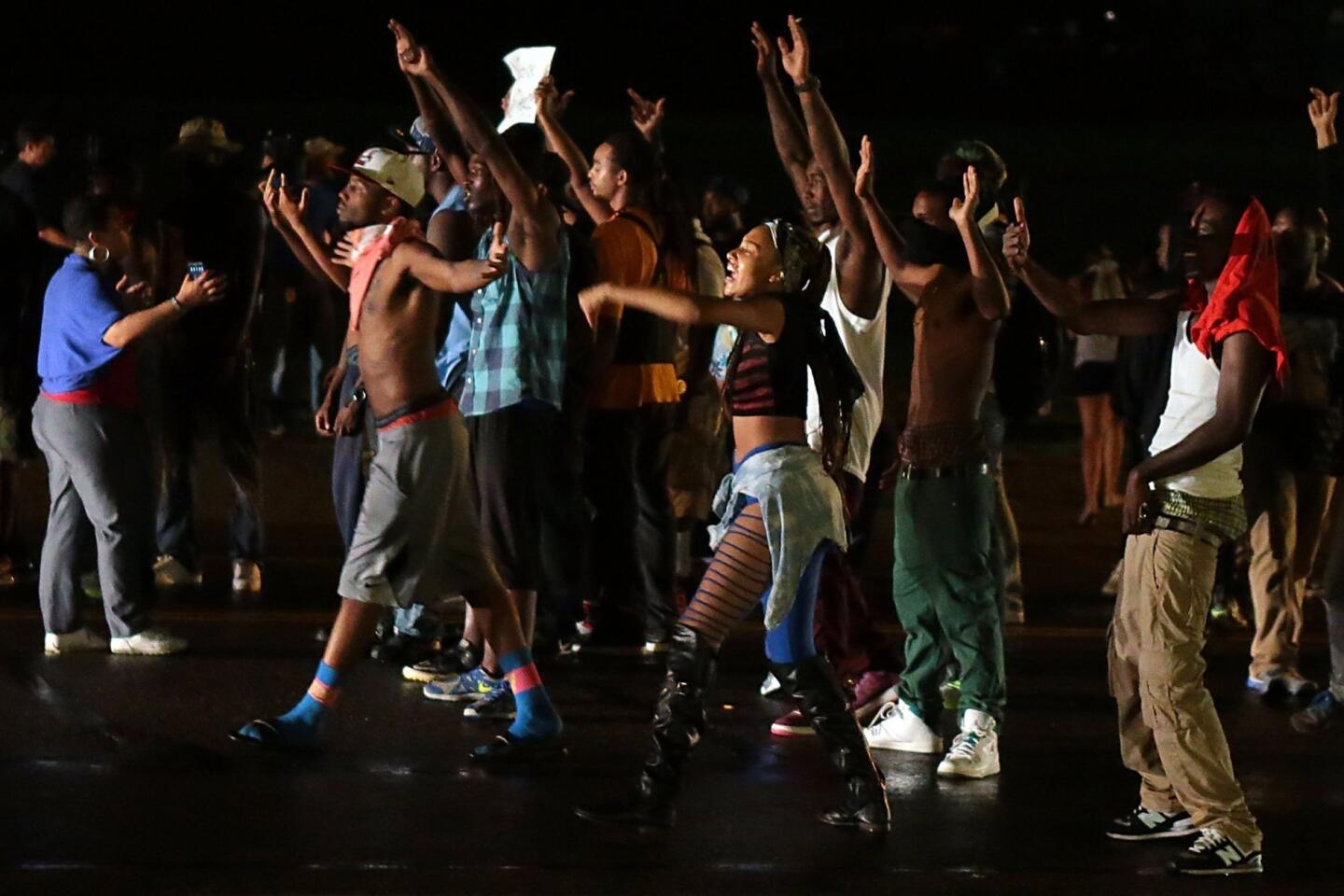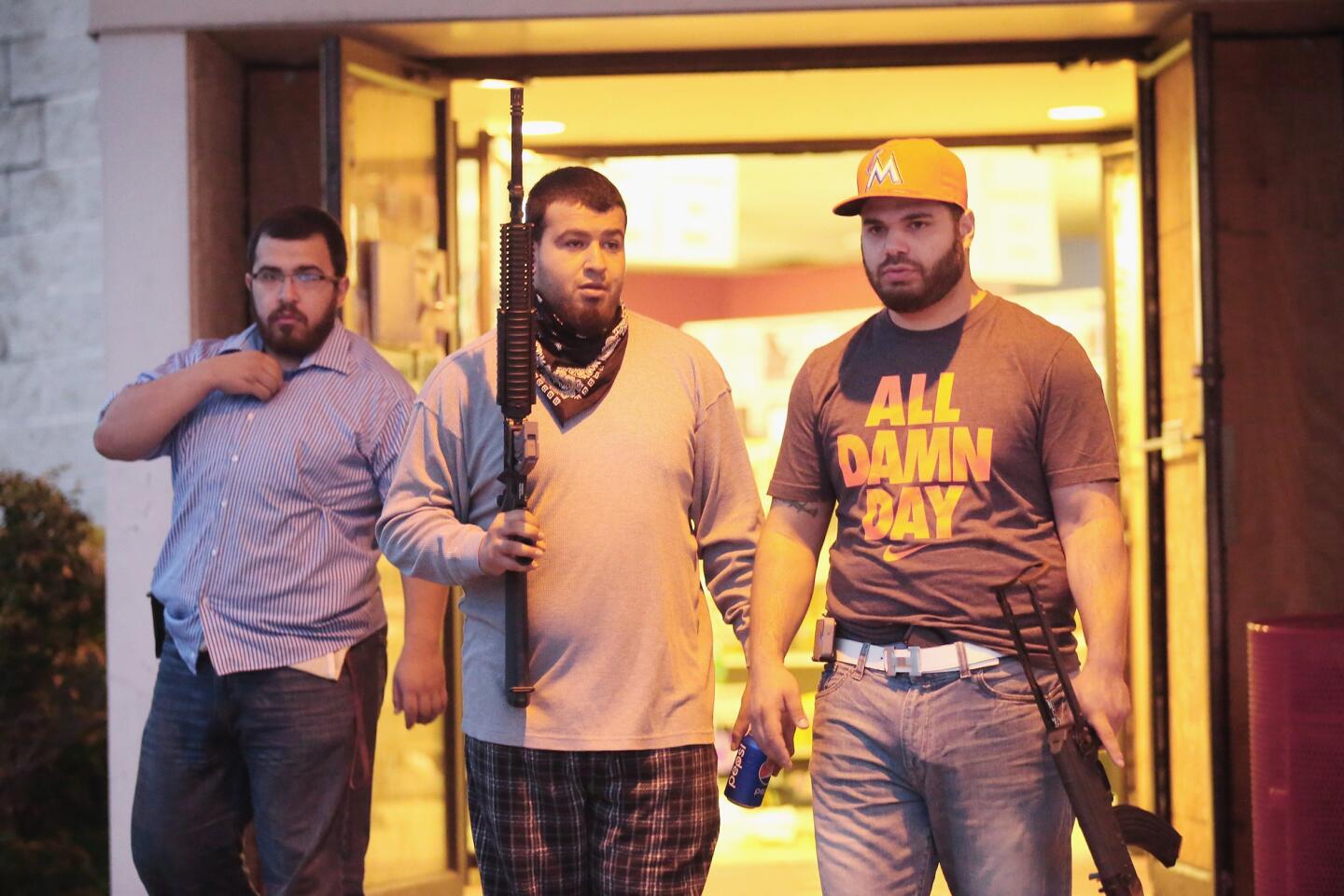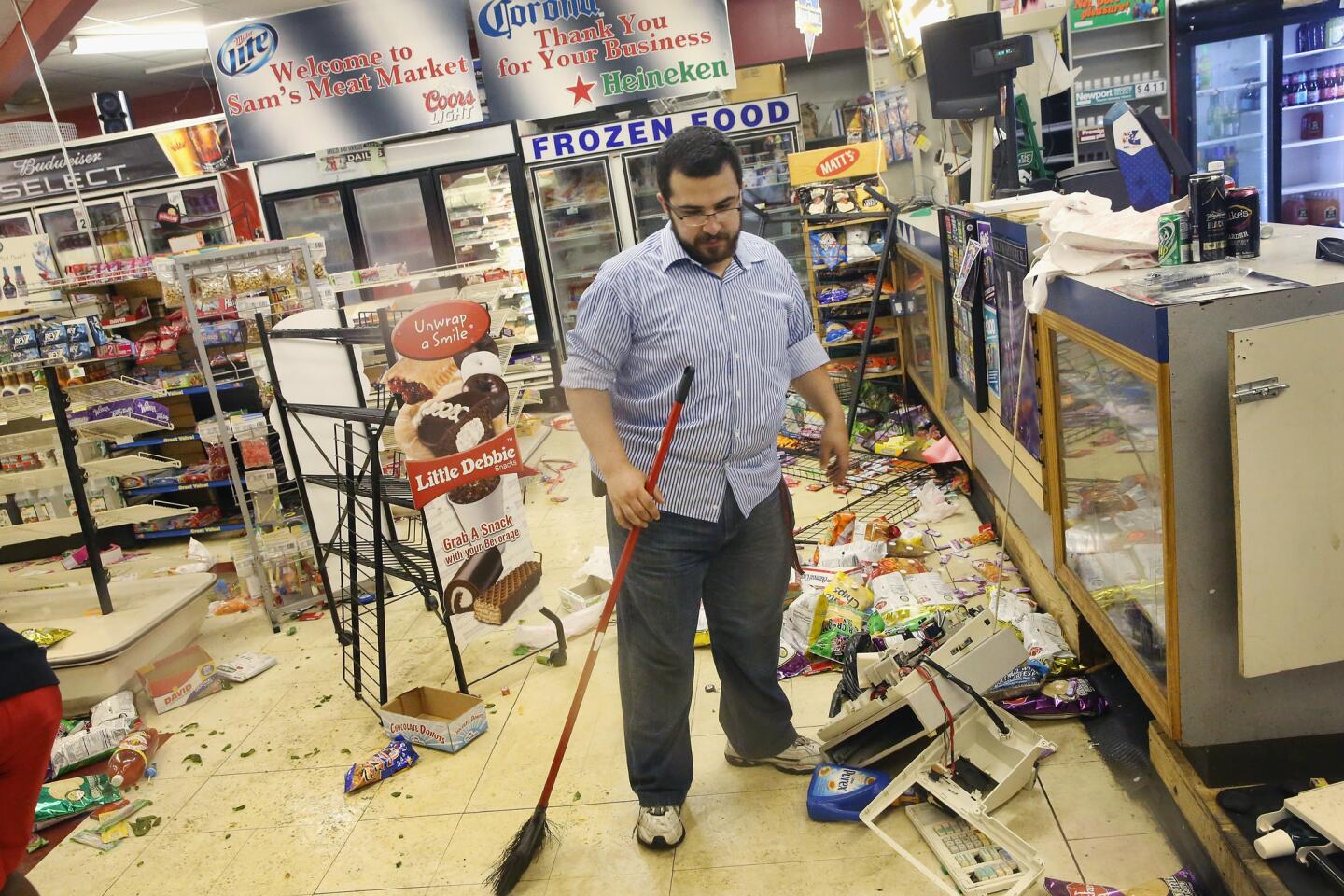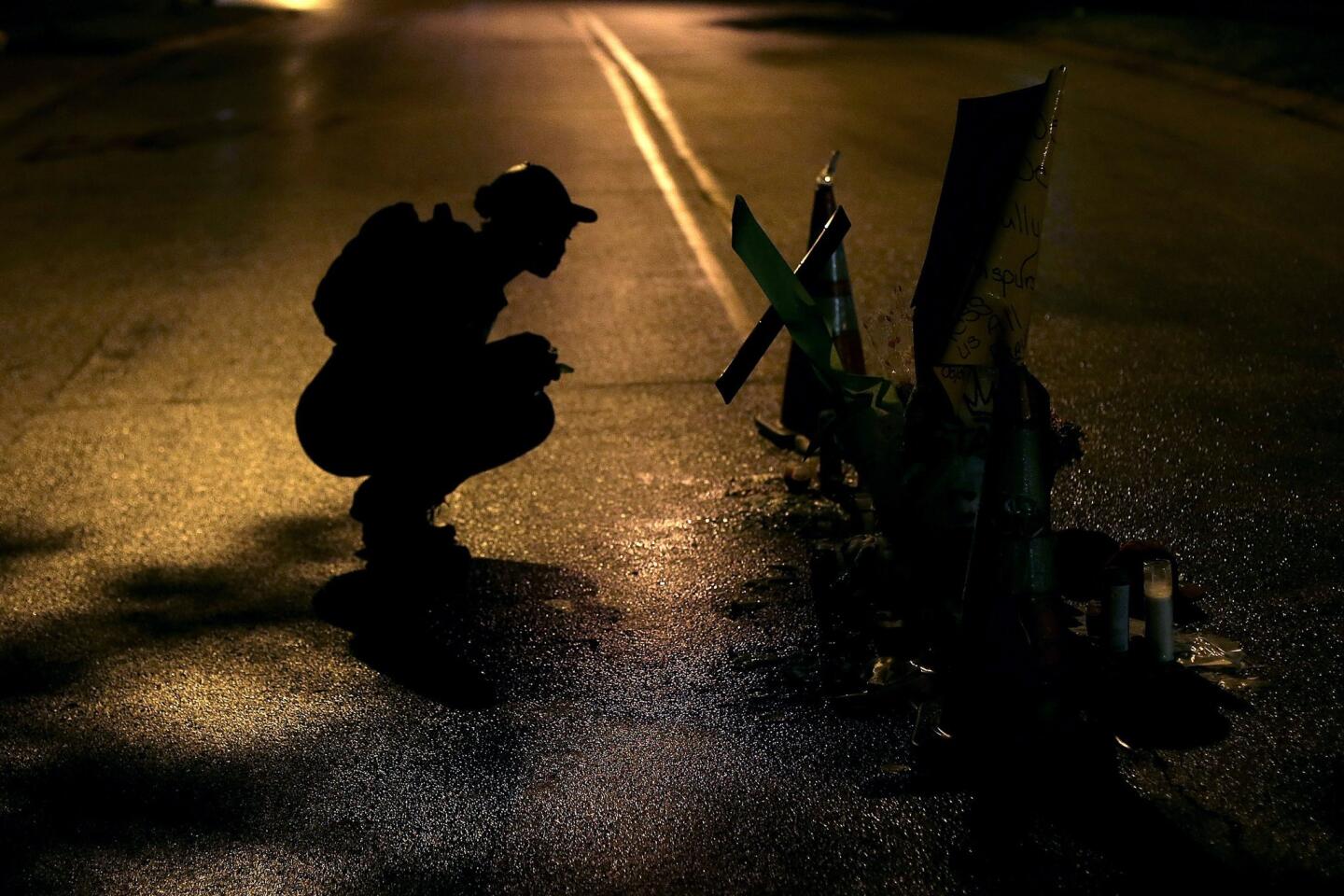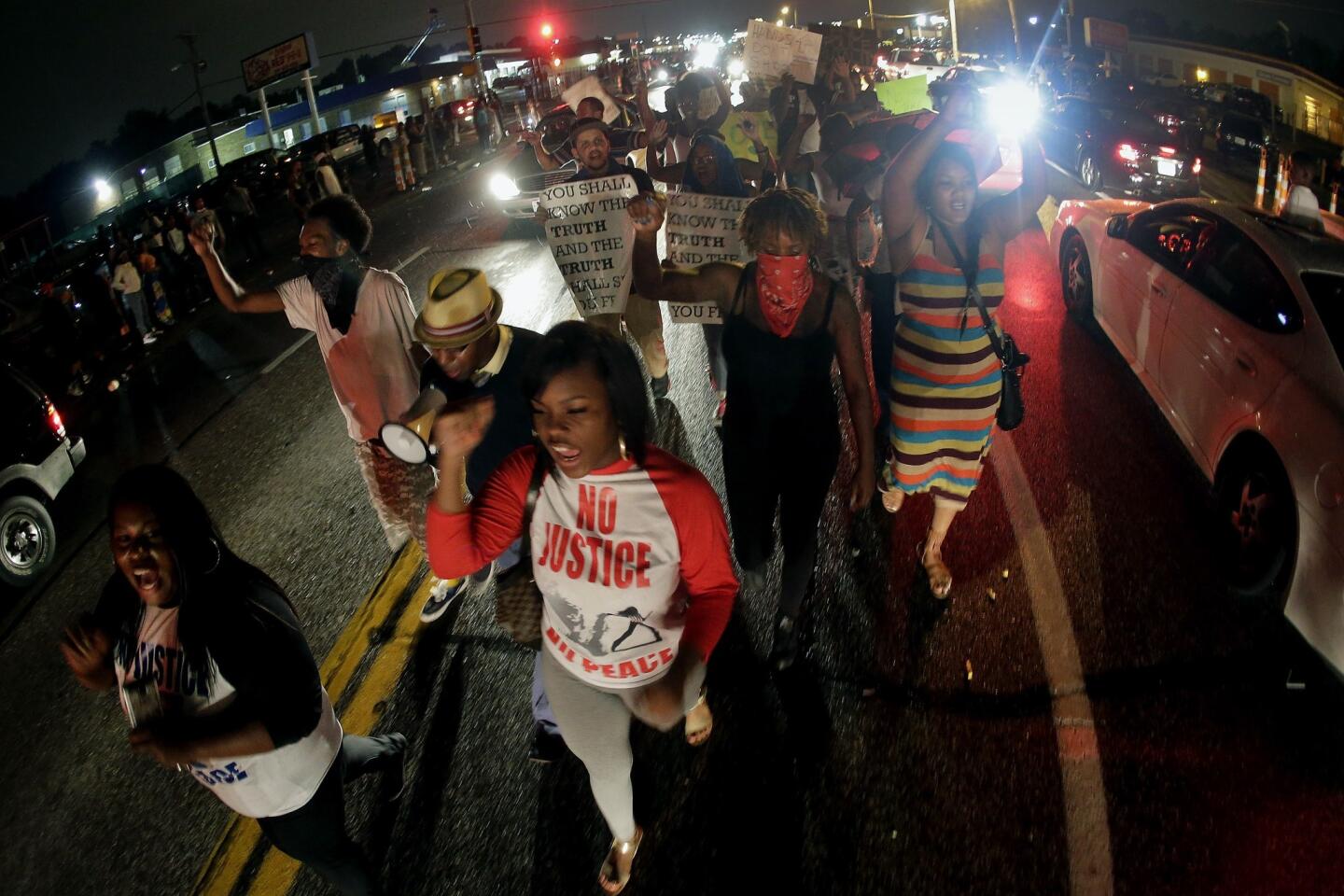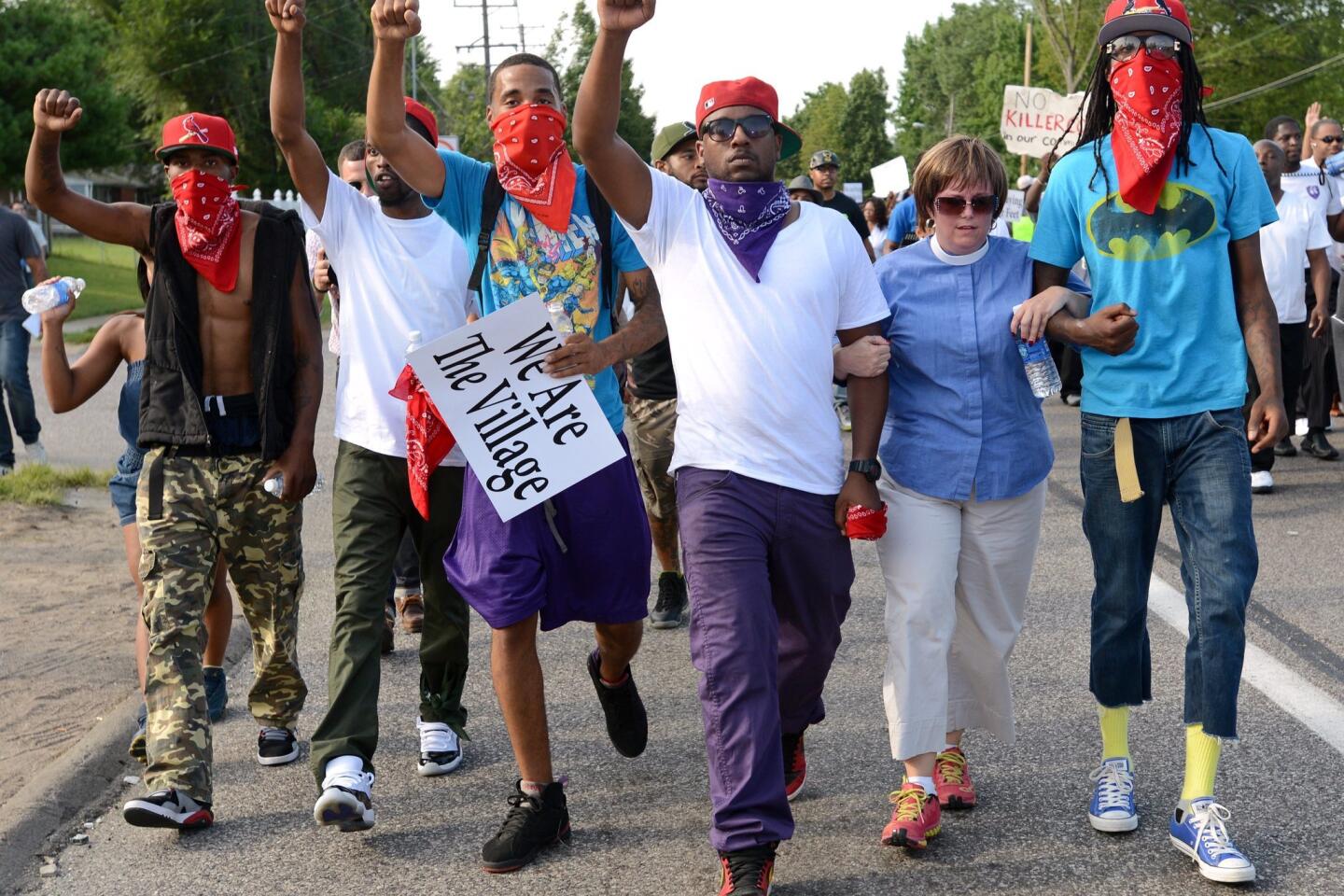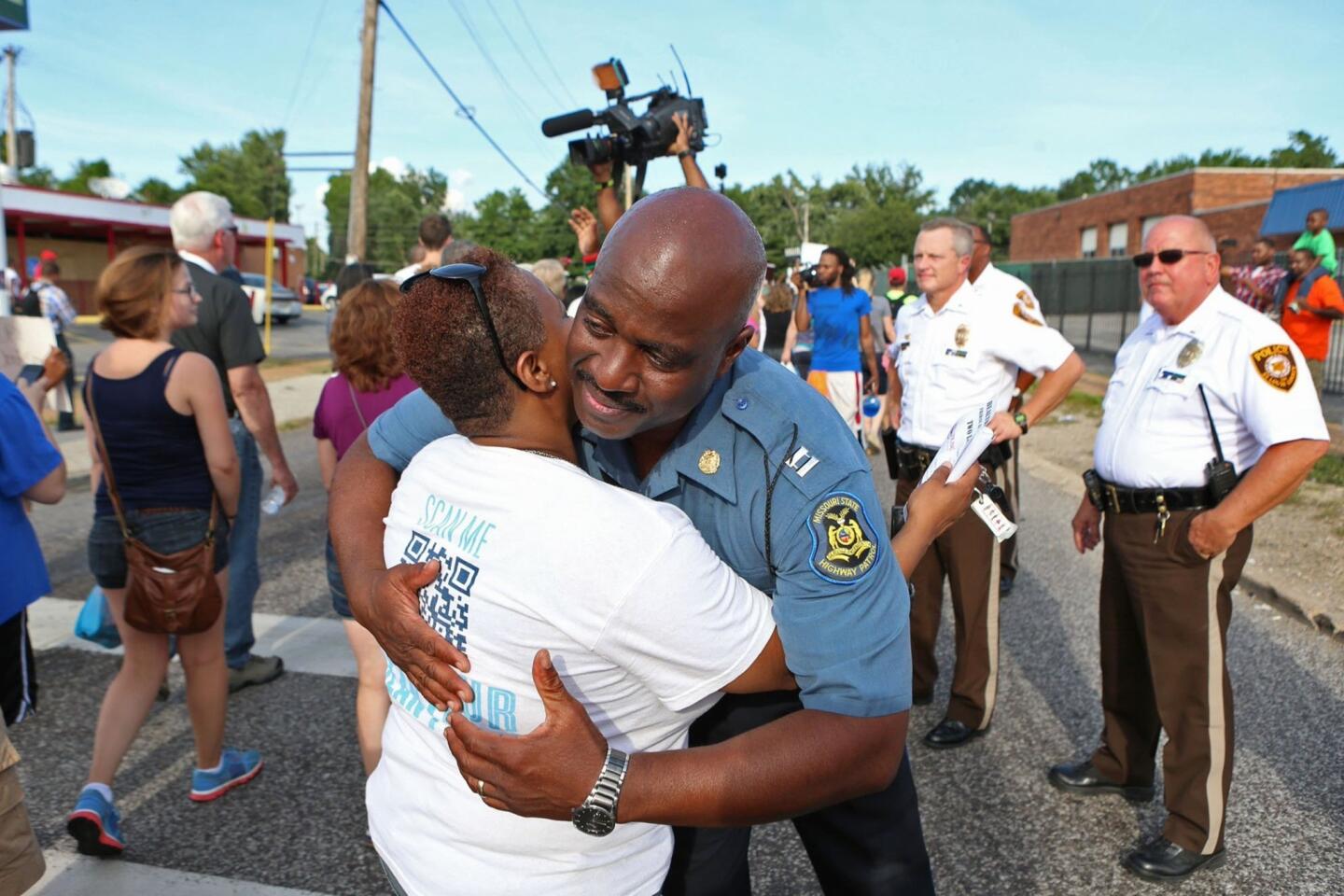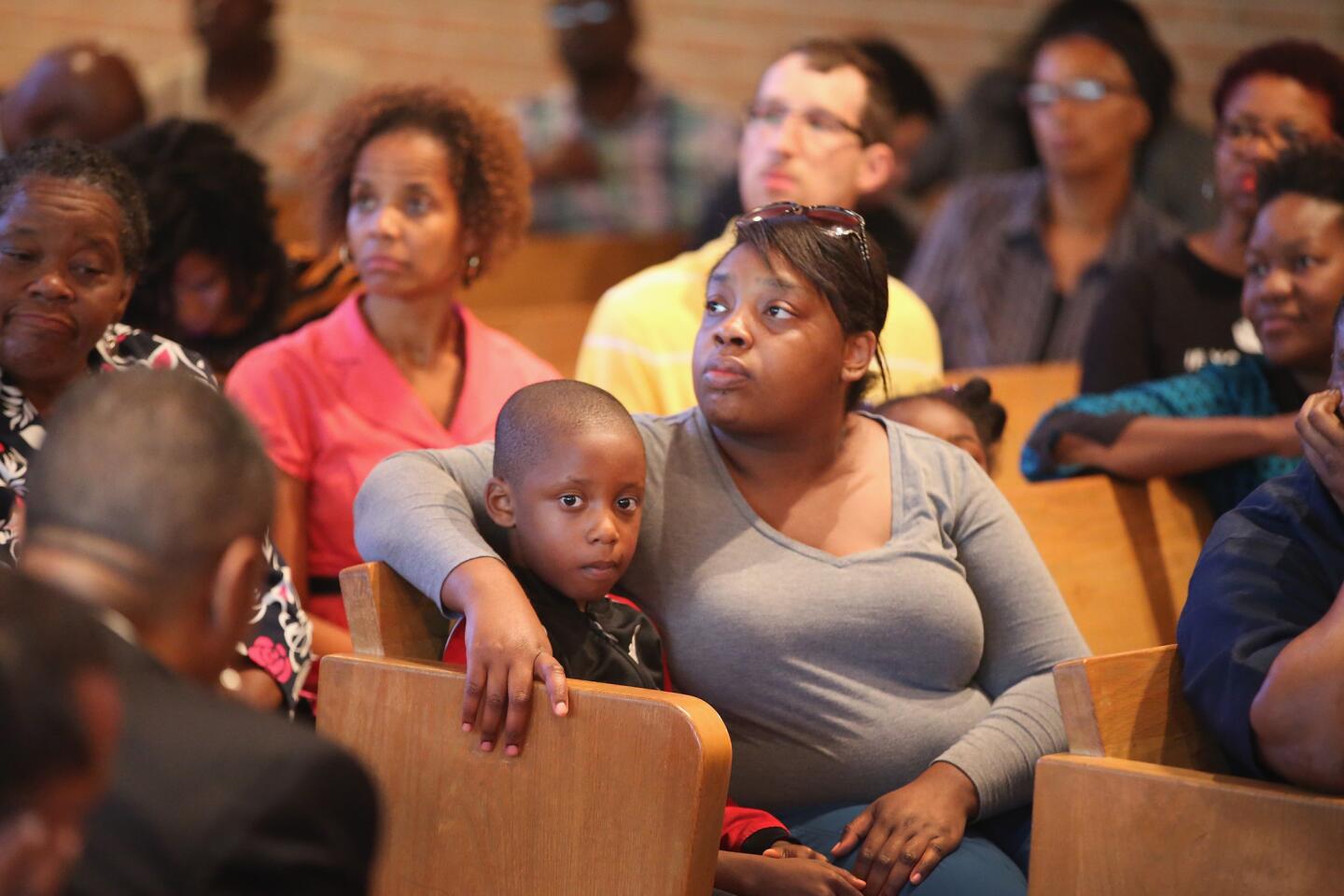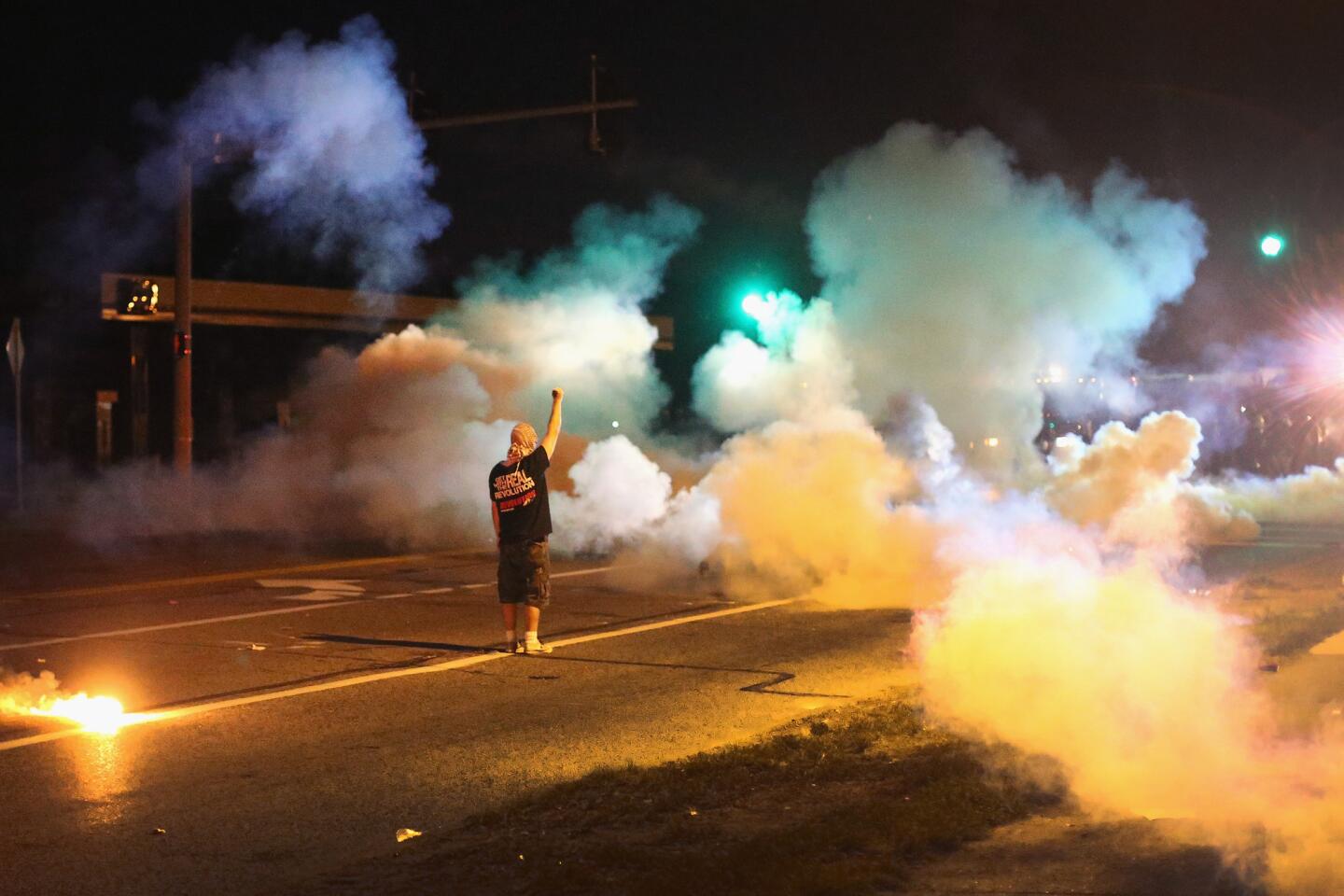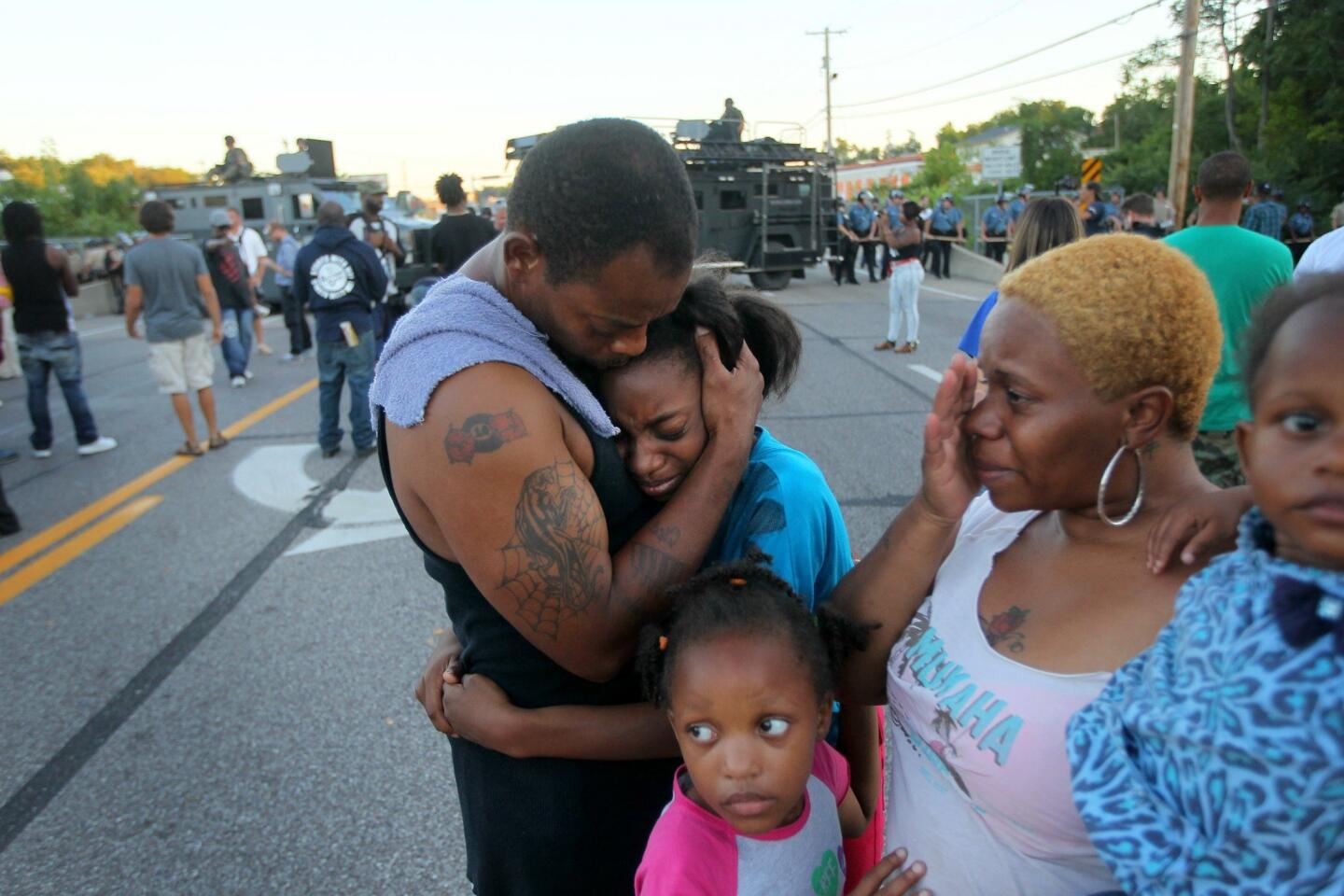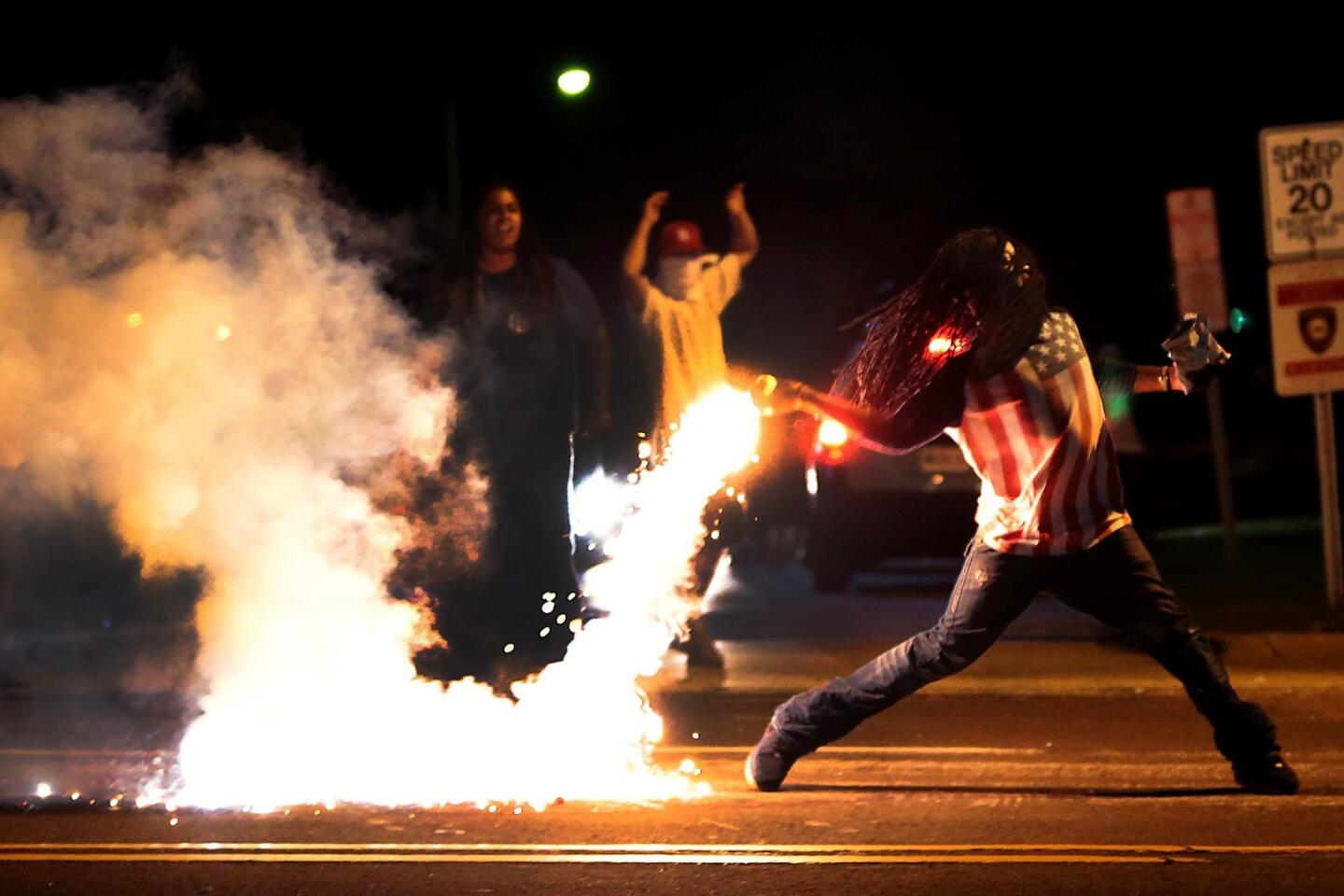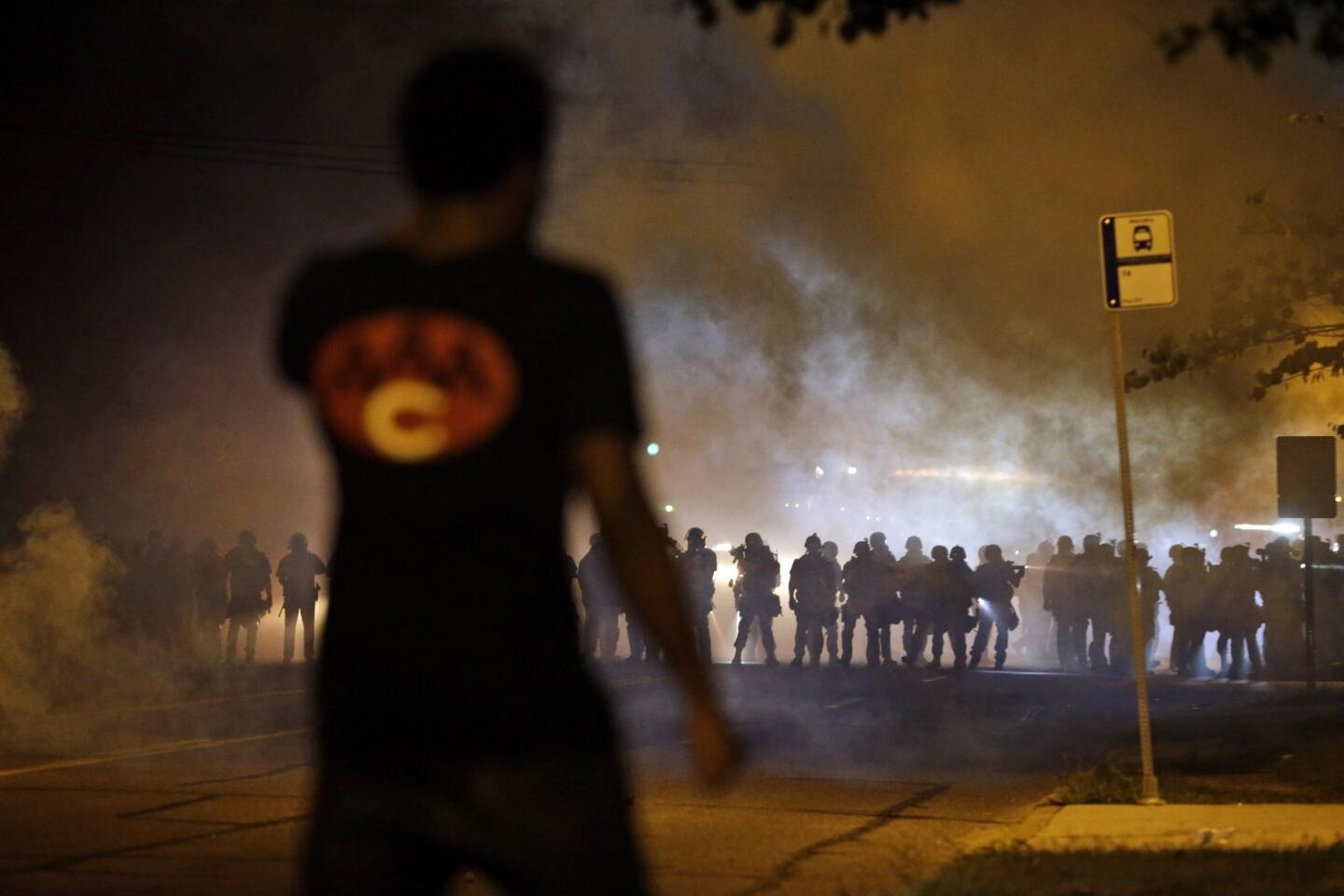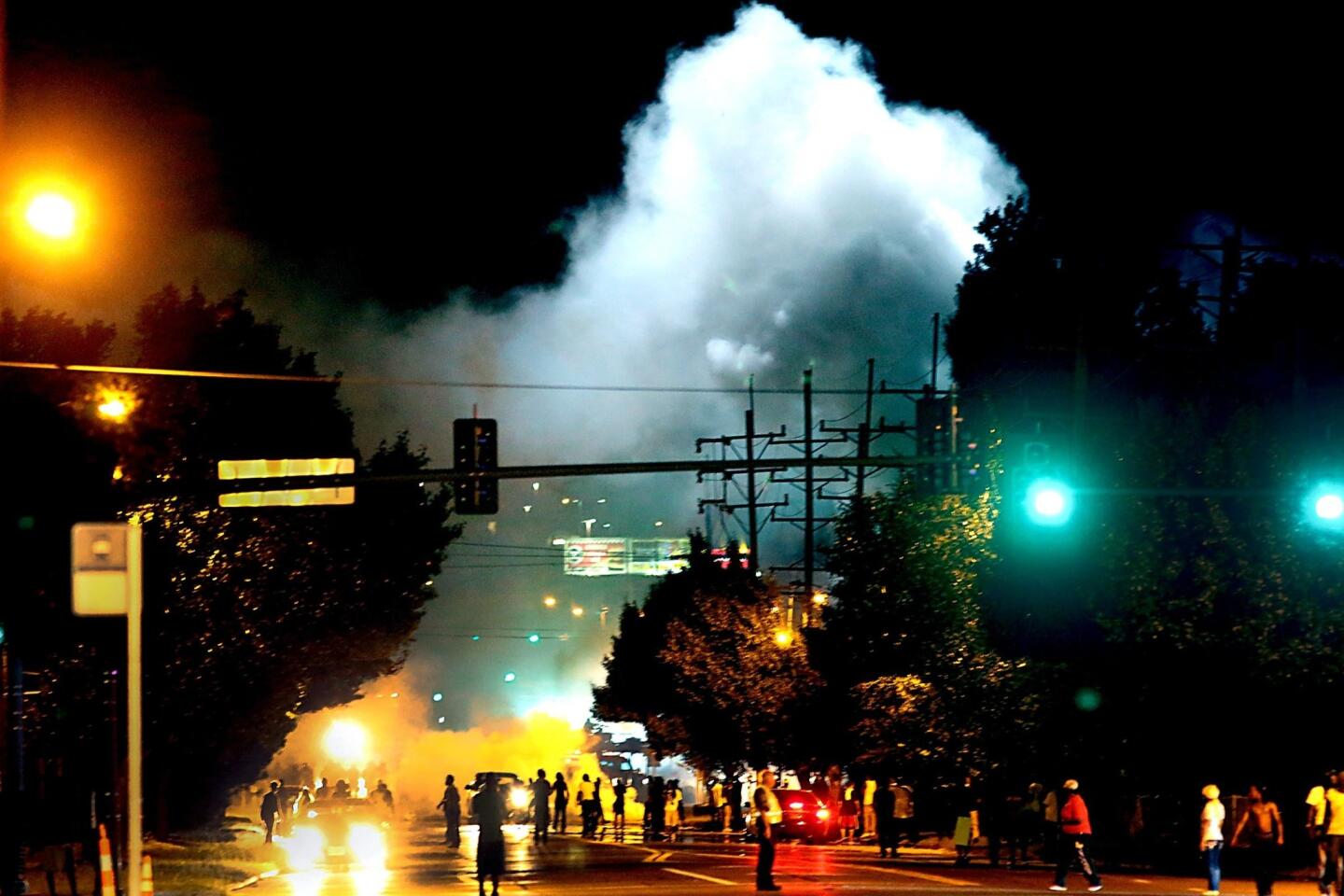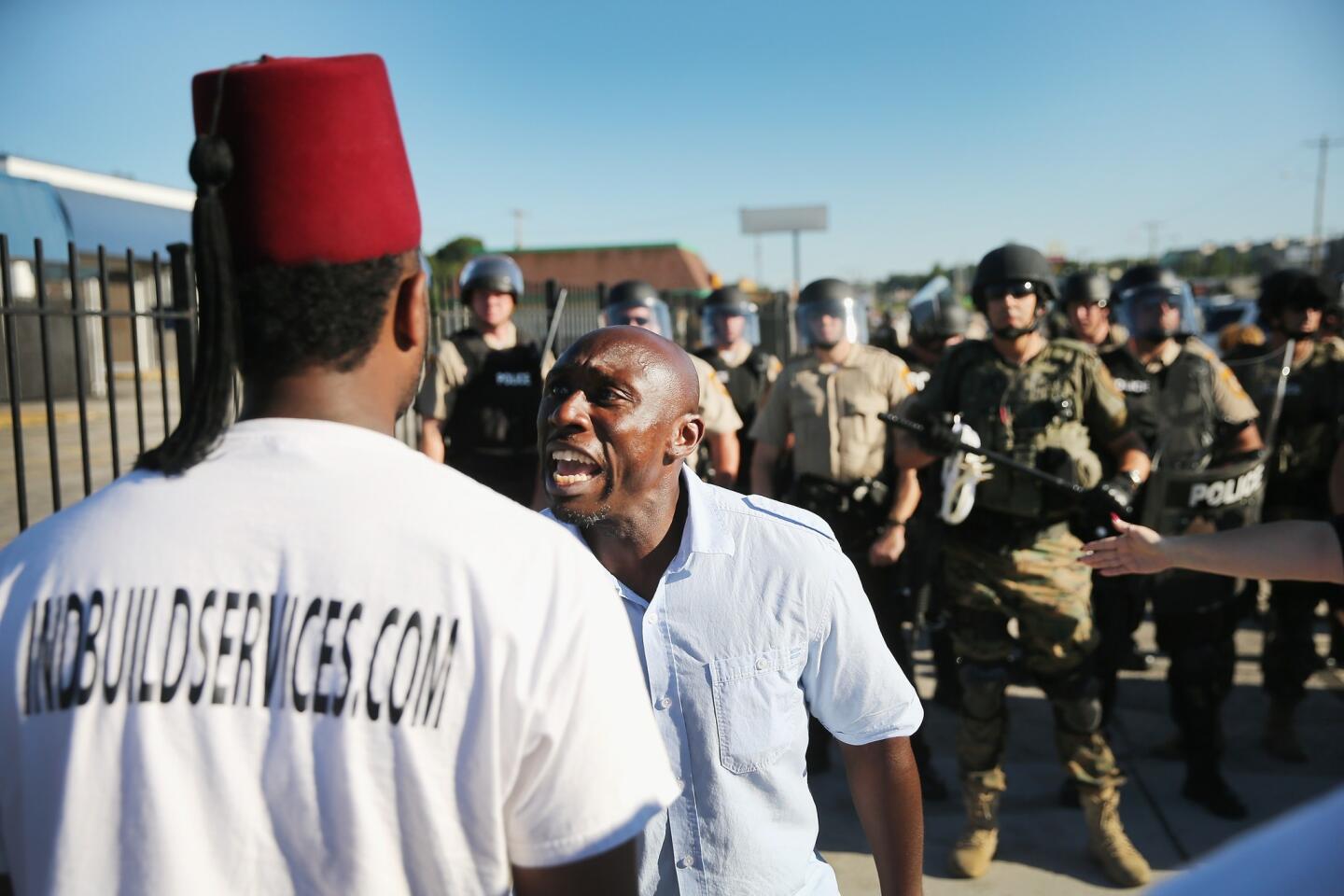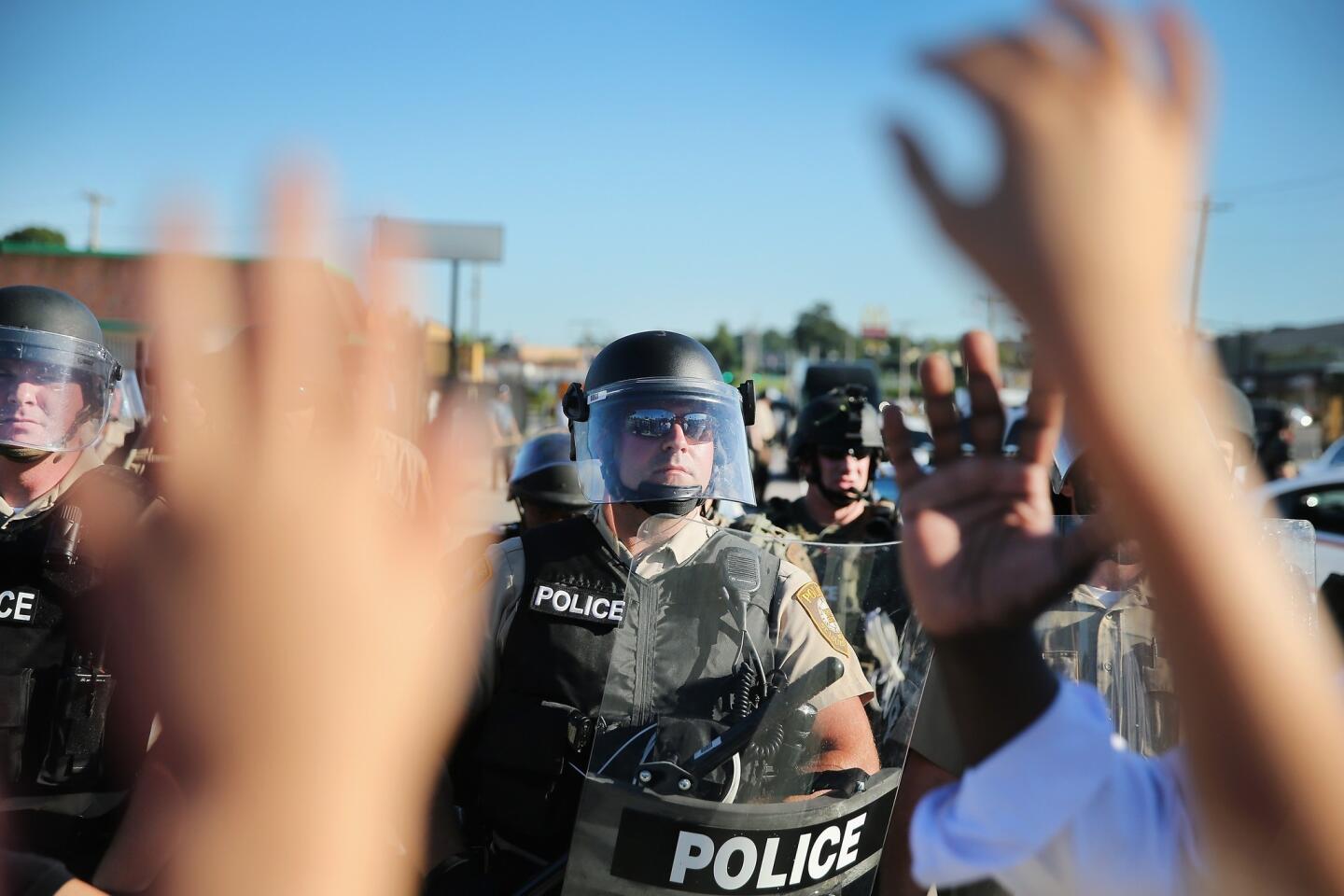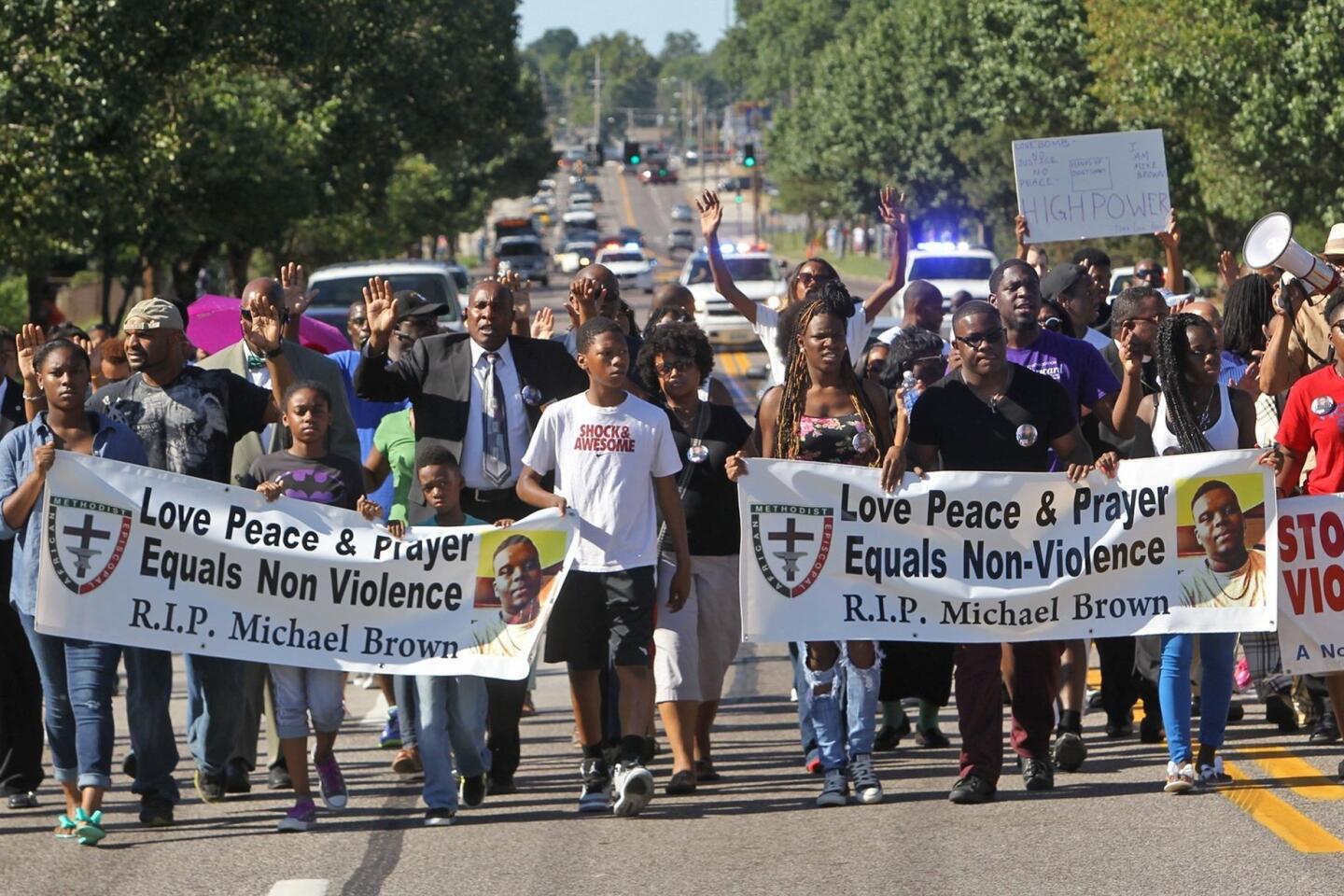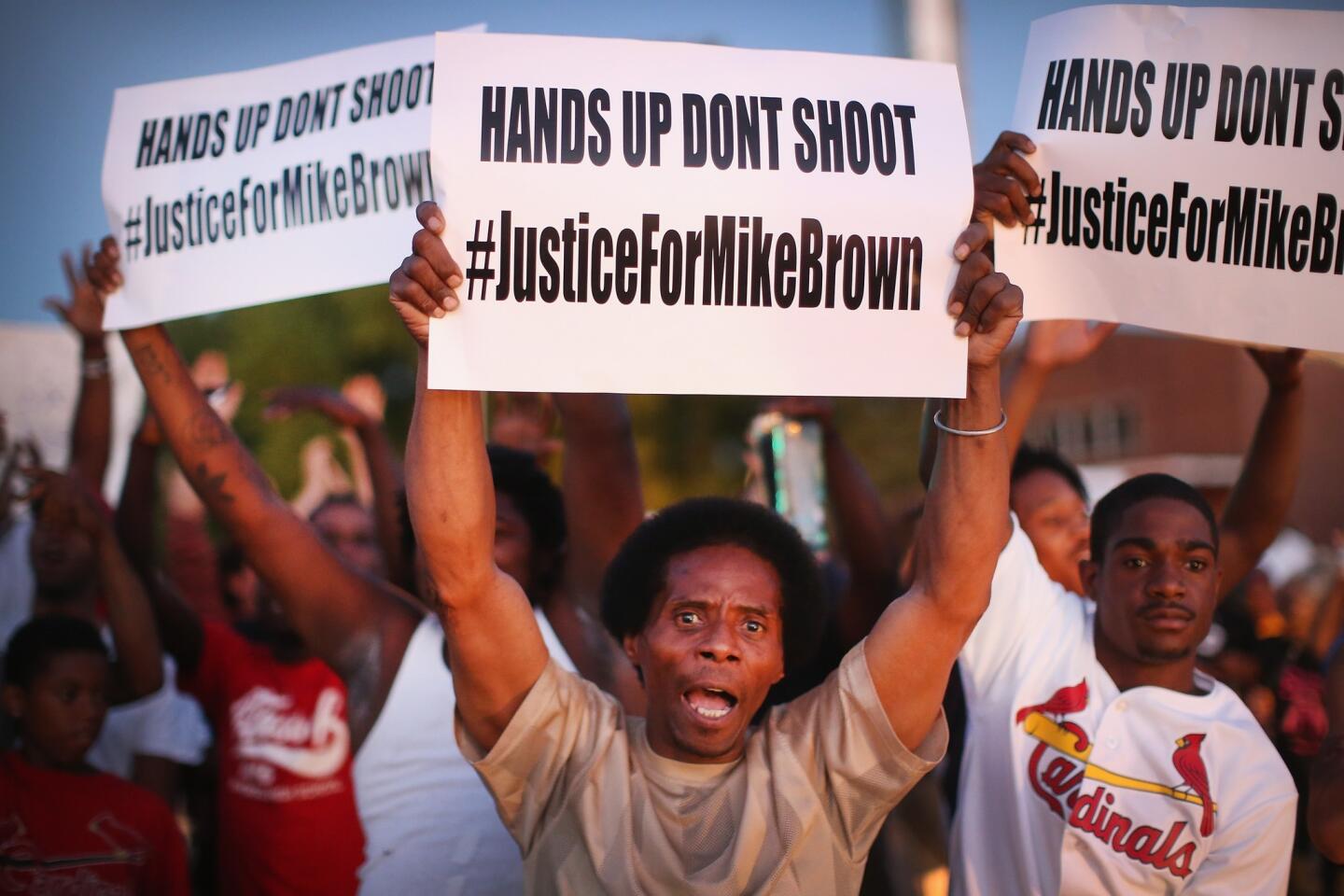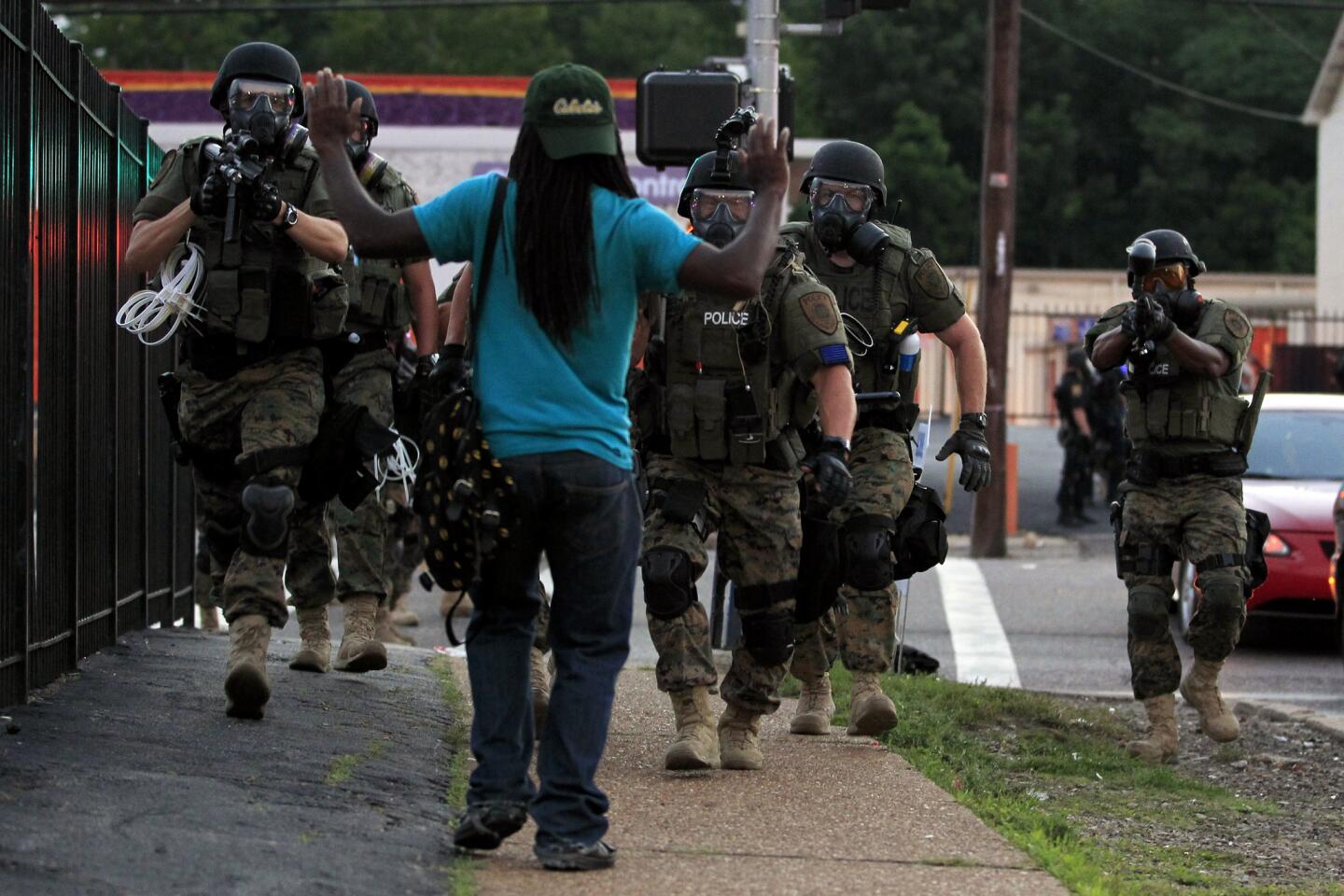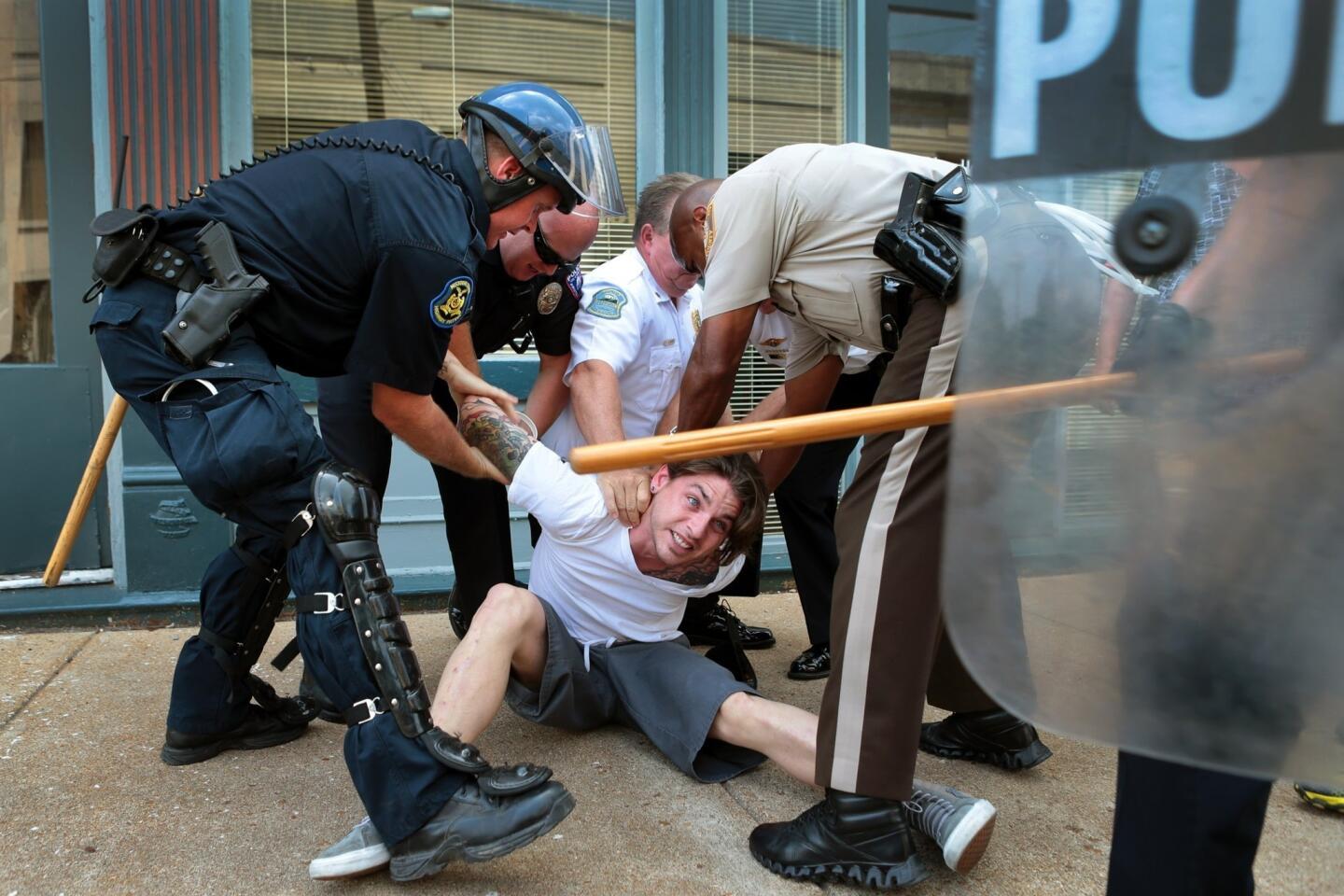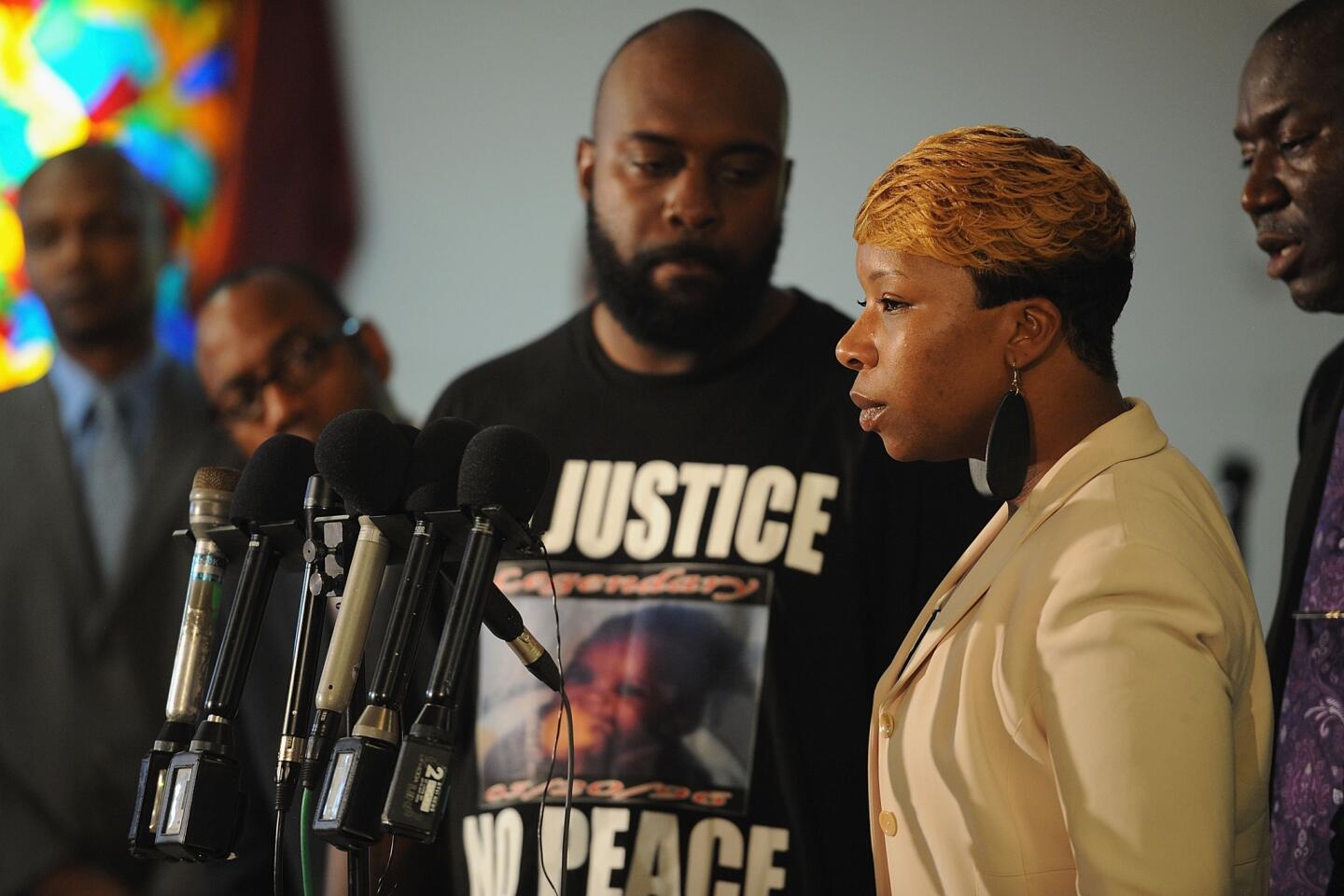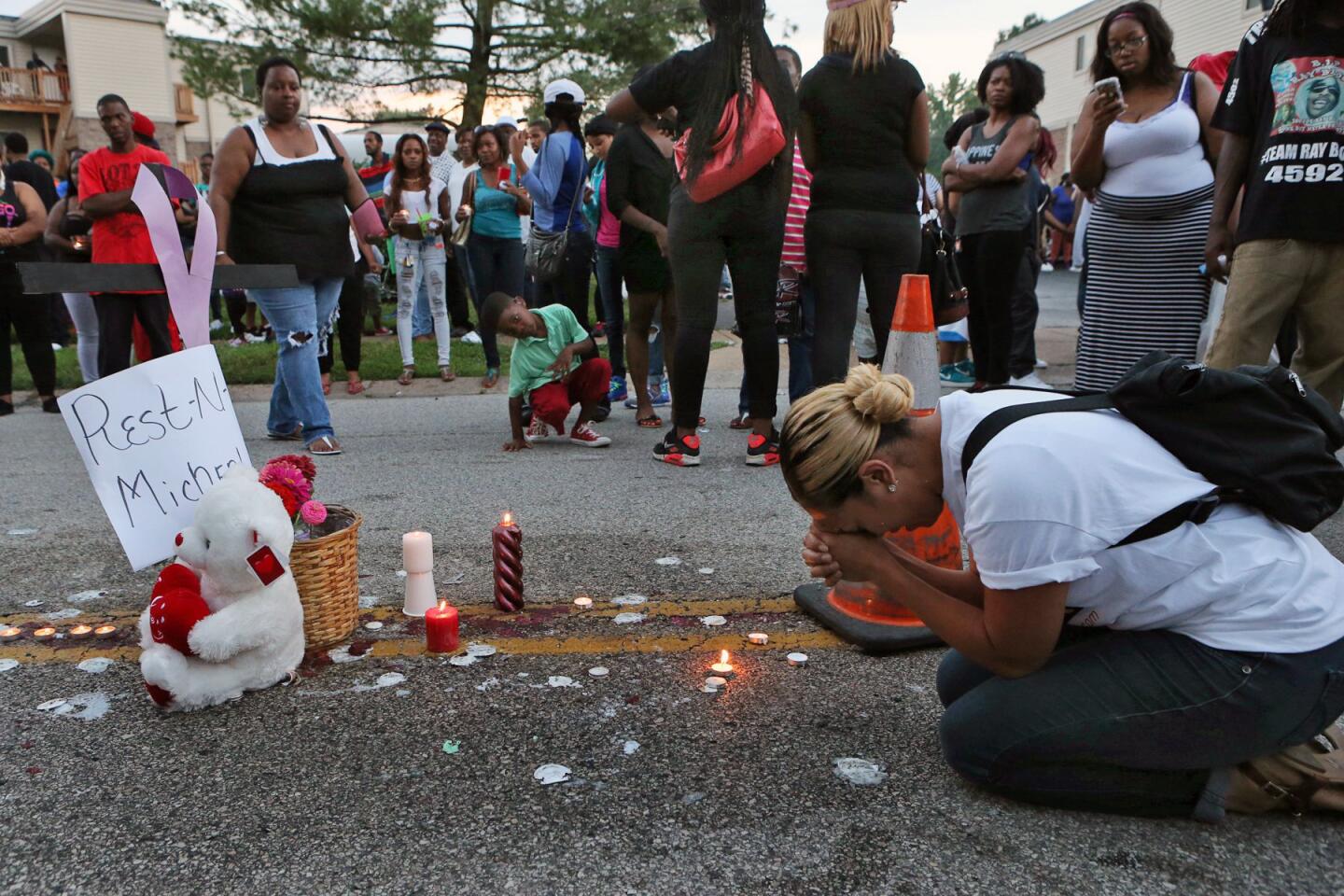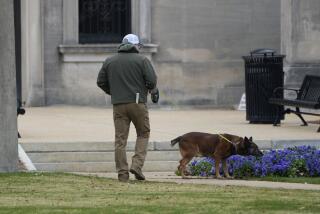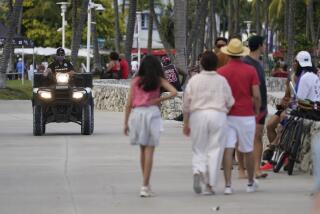Curfews, like Ferguson’s, enacted more often across U.S. in recent years
- Share via
Missouri Gov. Jay Nixon’s announcement of a curfew from midnight to 5 a.m. is a tactic that has been used more frequently in recent years as American cities have grappled with civil unrest or natural disasters.
Nixon’s curfew announcement came after violence erupted in Ferguson, Mo., early Saturday morning as crowds continued to protest the police shooting a week earlier of Michael Brown, an unarmed 18-year-old black resident.
At least three business were damaged and looted Saturday. Earlier in the week, heavily armed police officers lobbed tear gas and shot rubber bullets into crowds of protesters.
In recent years, authorities in Boston, New Orleans and other cities have enacted curfews as they contended with upheaval caused by hurricanes, racial tension and terrorism.
Last year, Massachusetts Gov. Deval Patrick asked residents of Boston, Cambridge and Watertown to shutter themselves inside as police scoured the area for Tamerlan and Dzhokhar Tsarnaev, the brothers who carried out the Boston marathon bombings.
Tamerlan Tsarnaev died in a shootout with Watertown police in April 2013. Police asked residents of all three cities to remain indoors as they searched for his brother. Dzhokhar Tsarnaev was later located nearby hiding in a boat.
In the aftermath of Hurricane Katrina in 2005, New Orleans was placed under a dusk-til-dawn curfew in an attempt to prevent looting and violence after the city flooded and lost power.
When Hurricane Sandy hurtled up the East Coast in 2012, several New Jersey towns also ordered curfews.
In 2001, then-Mayor Charlie Luken announced an 8 p.m. curfew in Cincinnati after rioting broke out in response to a white police officer killing an unarmed black teenager.
Many American cities, including Los Angeles, also maintain curfew laws for juveniles. But it is rare to see them strongly enforced.
Last month, the Baltimore City Council passed one of the country’s strictest curfew laws, requiring children under the age of 14 to be home by 9 p.m. Children up to 16 are required to be home by 10 p.m. on school nights and 11 p.m. on weekends.
Follow @JamesQueallyLAT for breaking news
More to Read
Sign up for Essential California
The most important California stories and recommendations in your inbox every morning.
You may occasionally receive promotional content from the Los Angeles Times.
